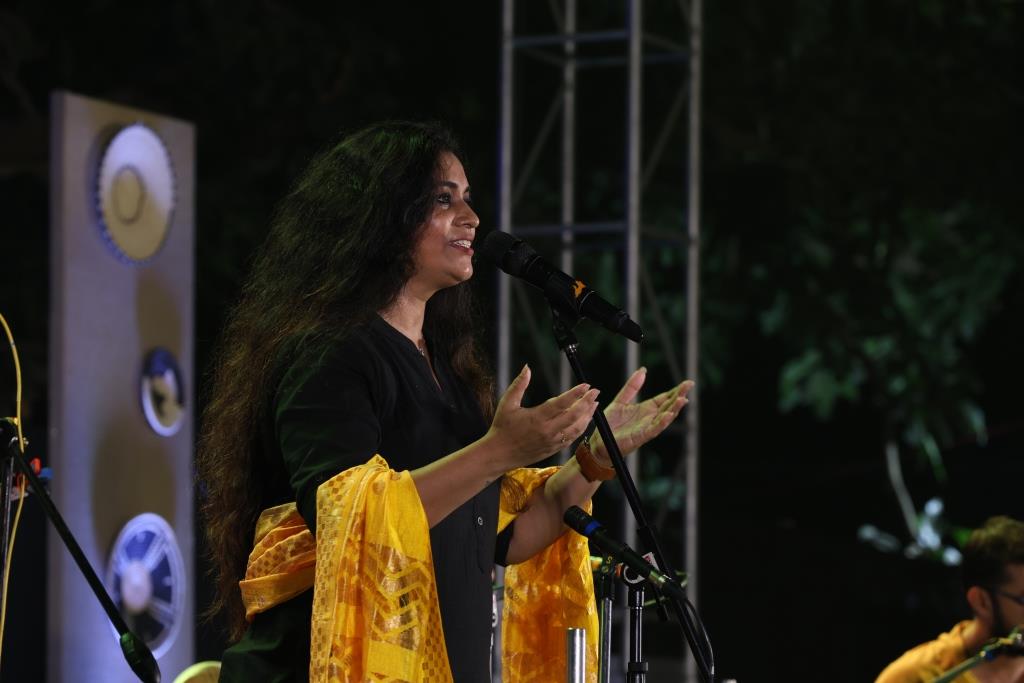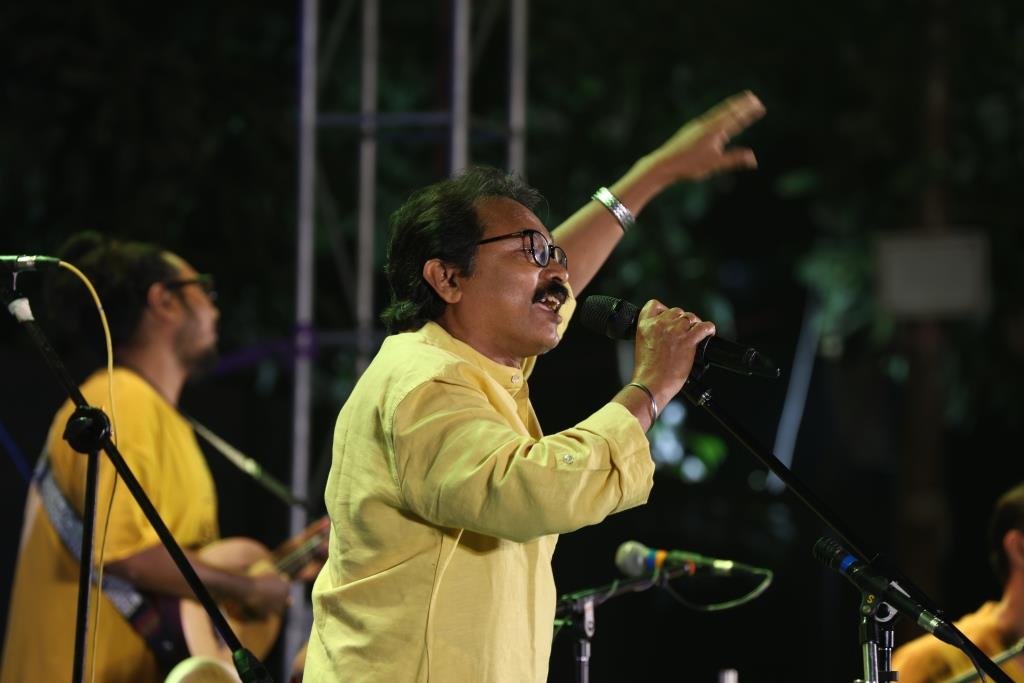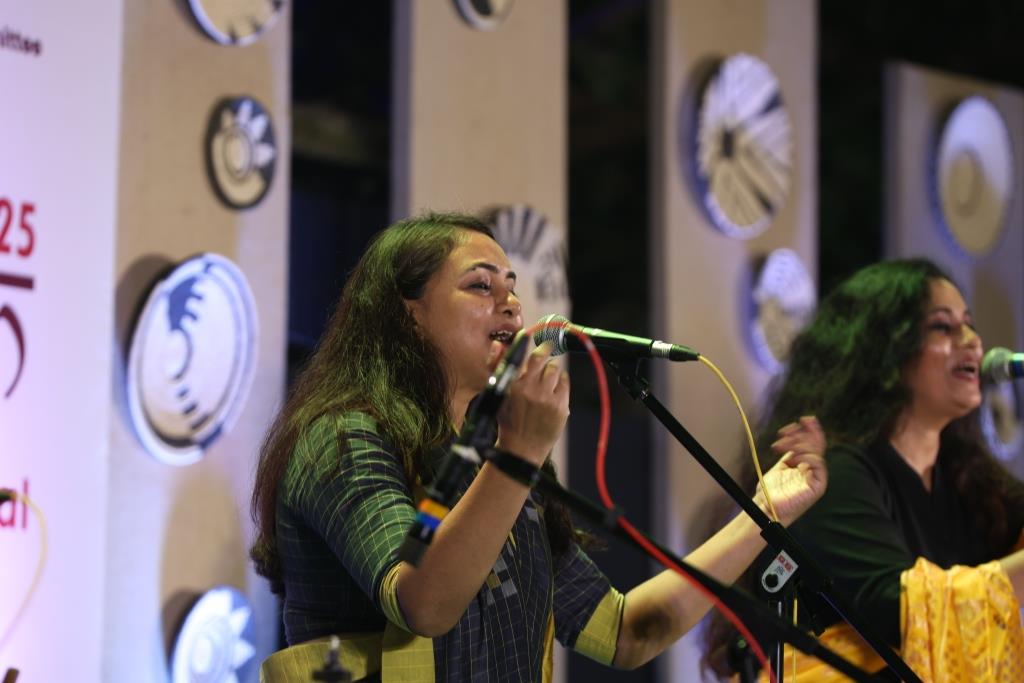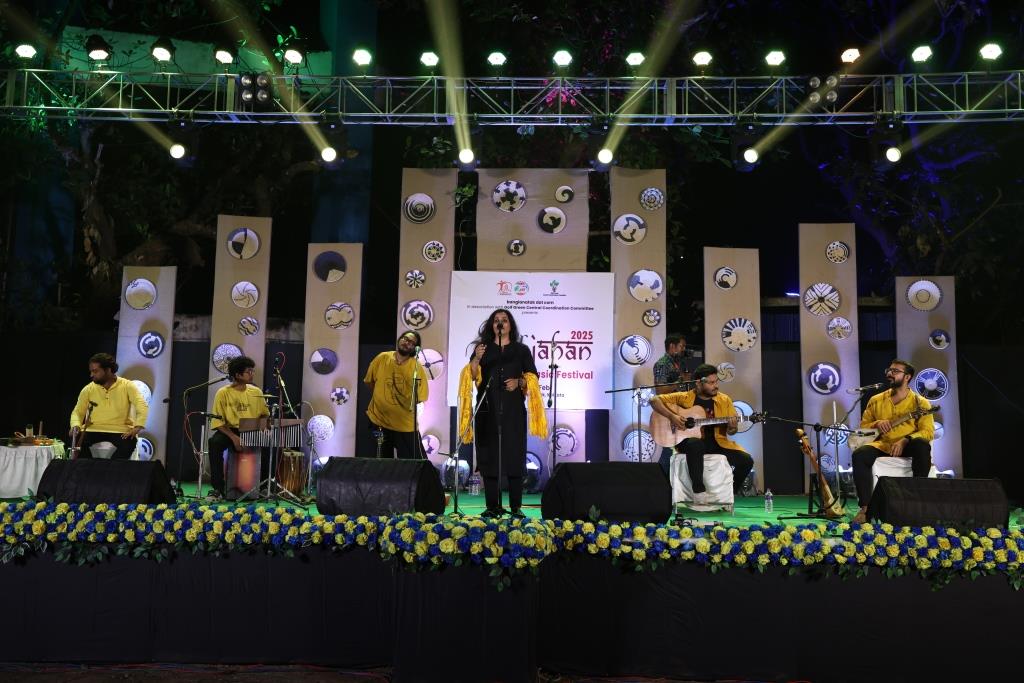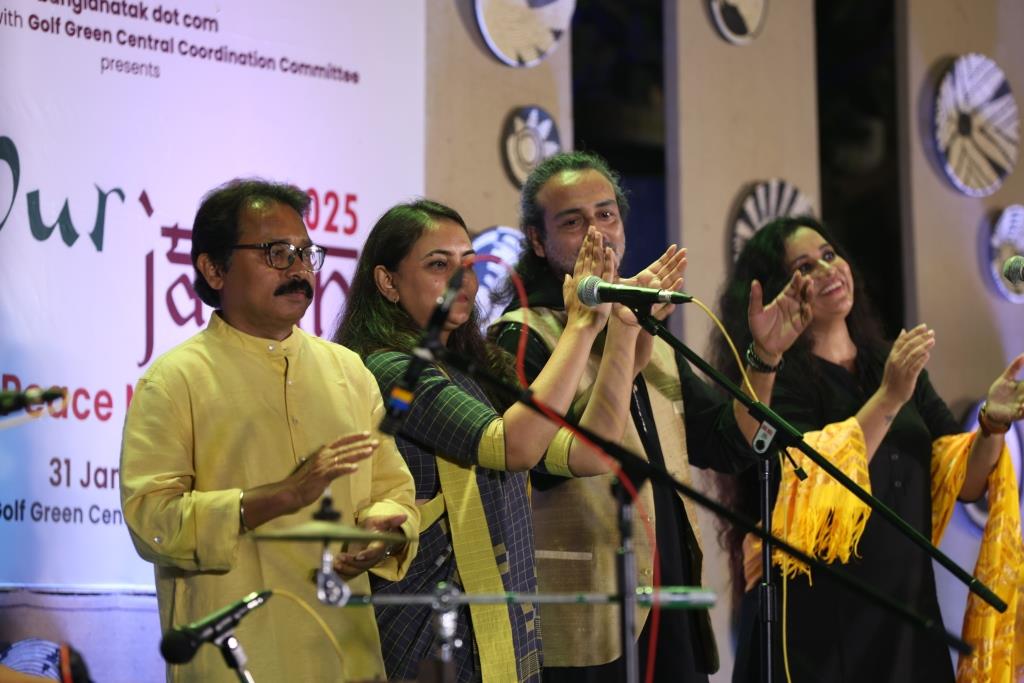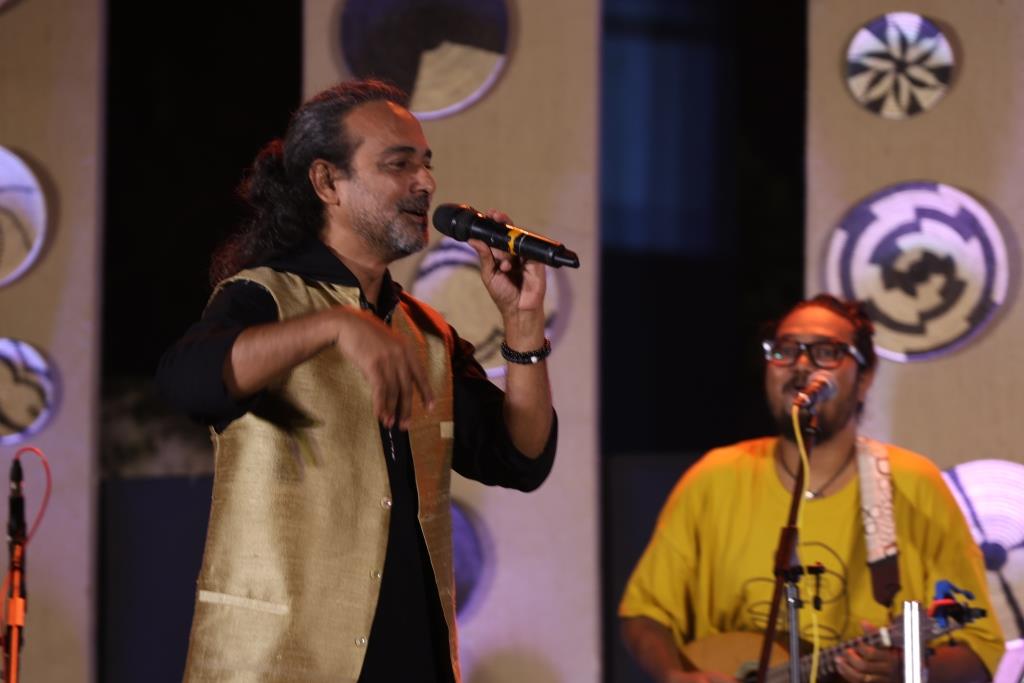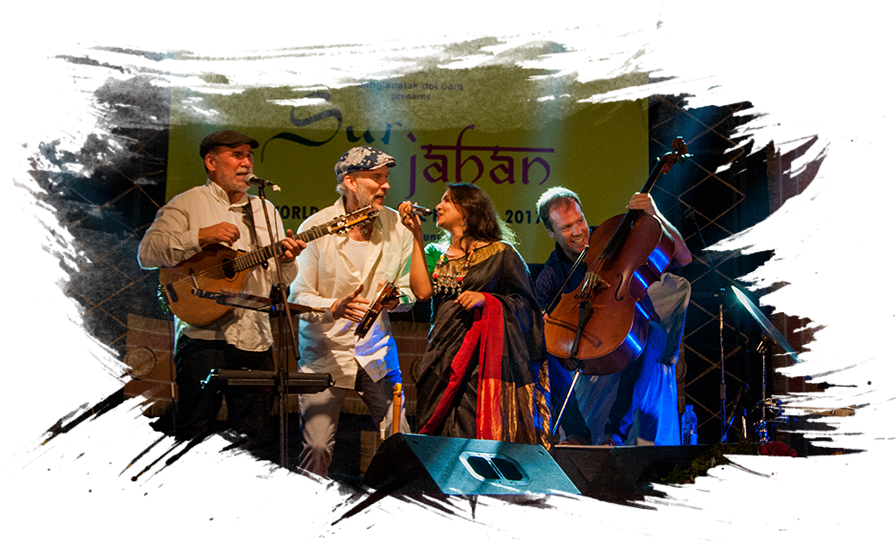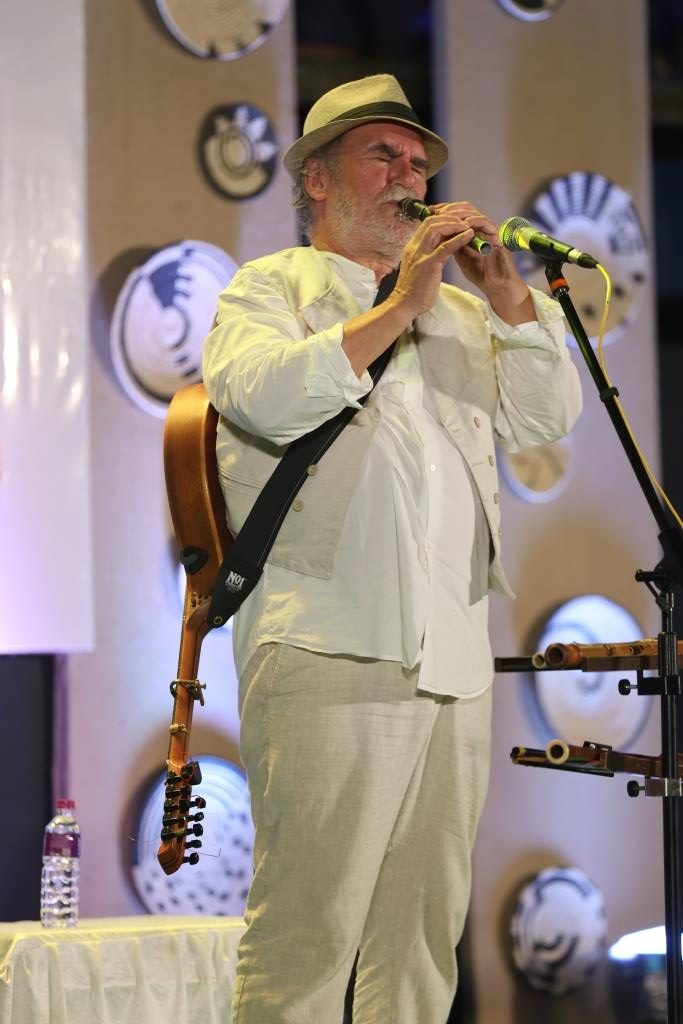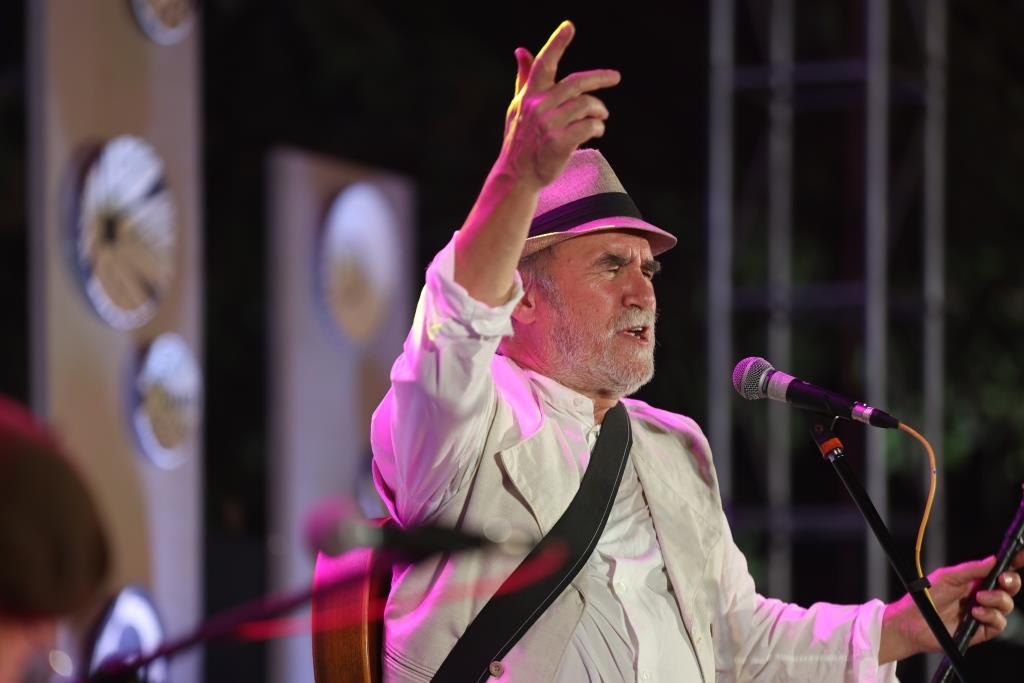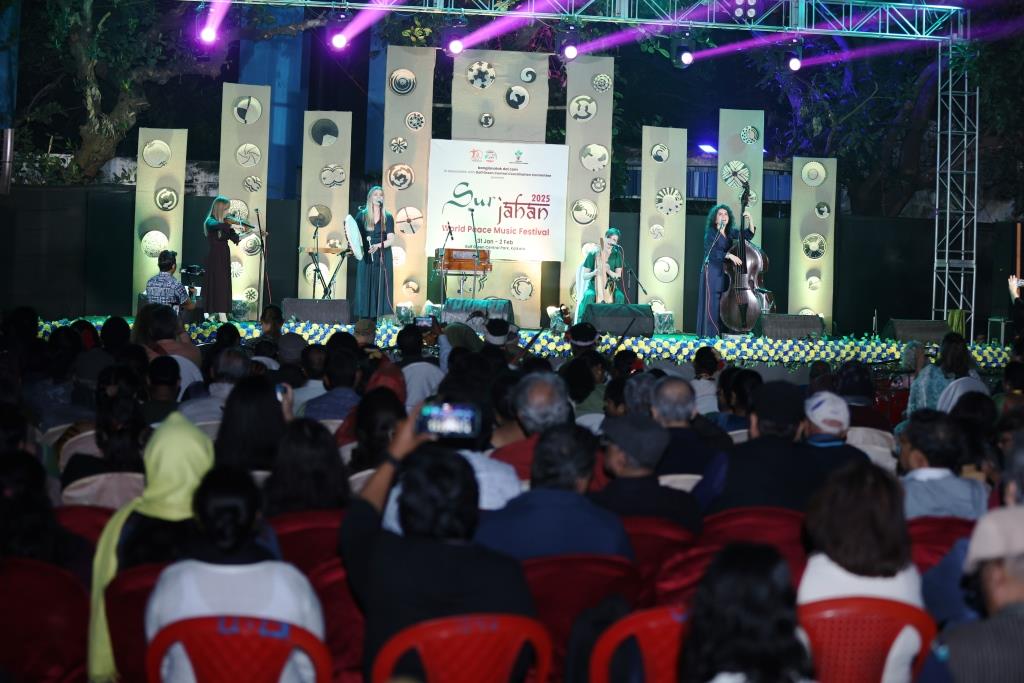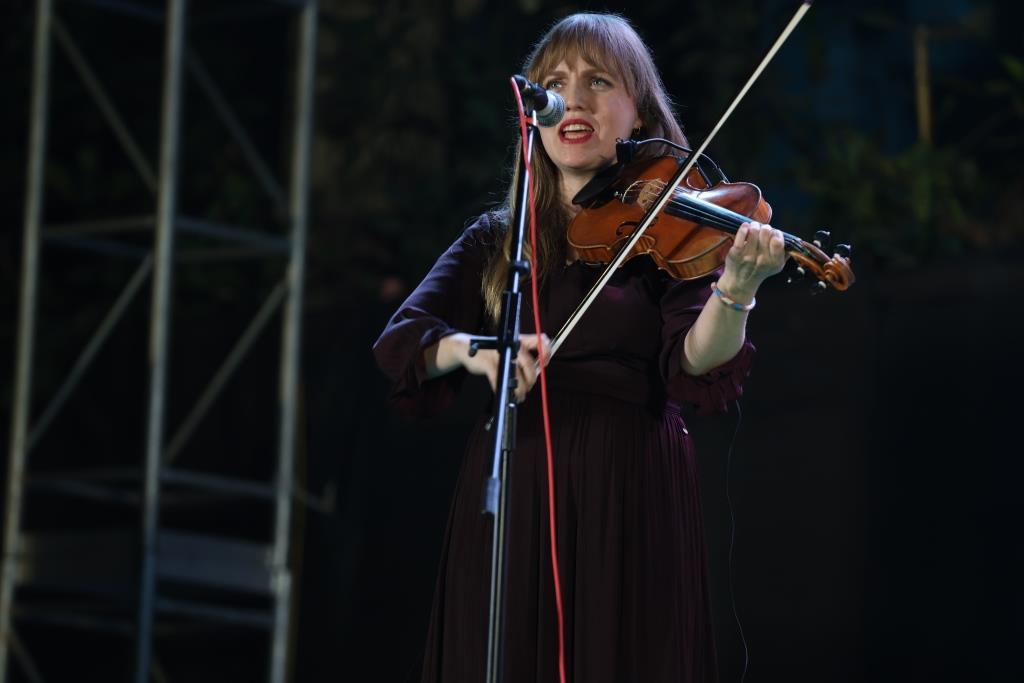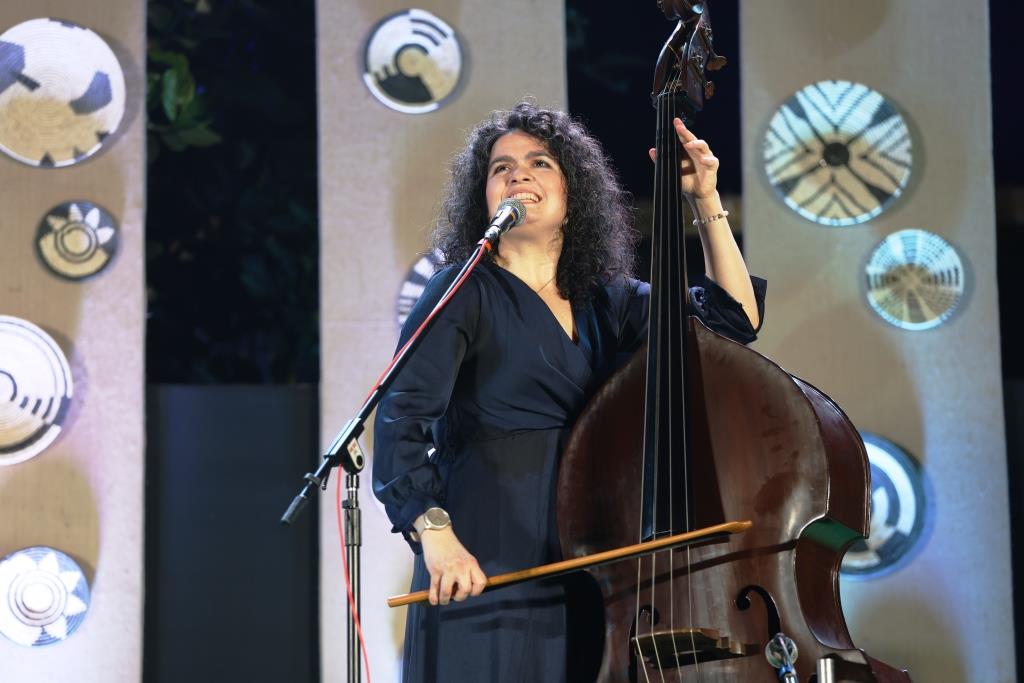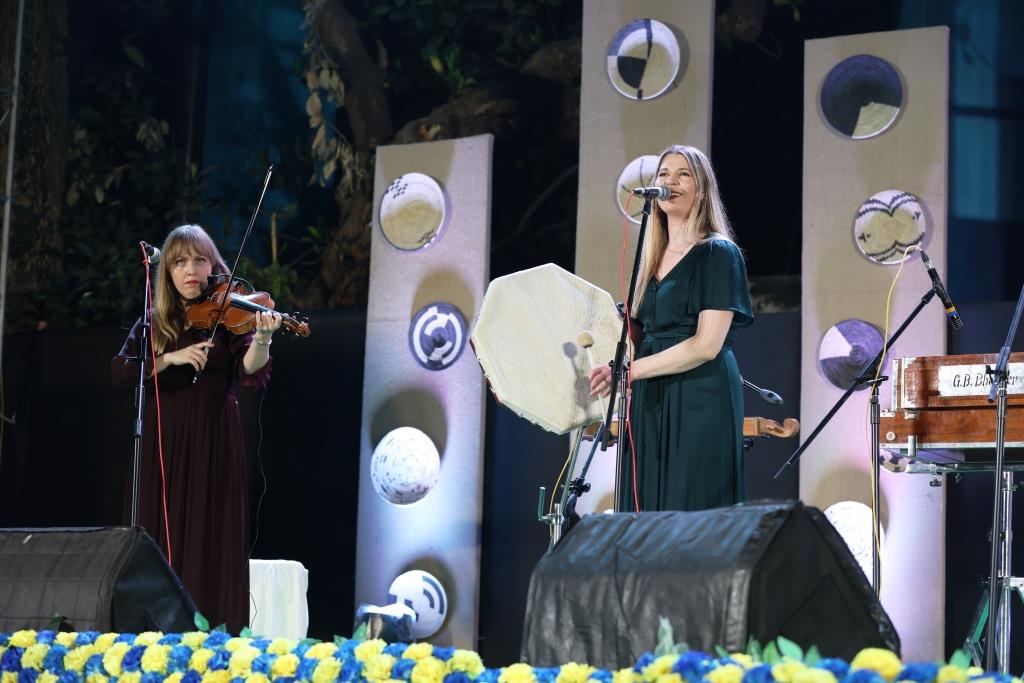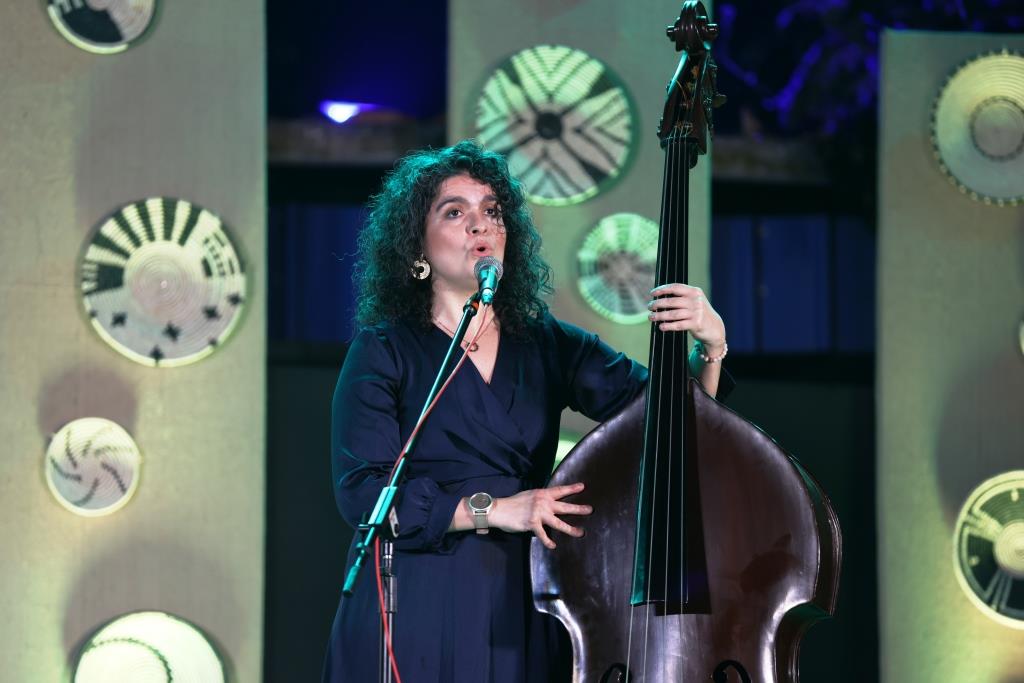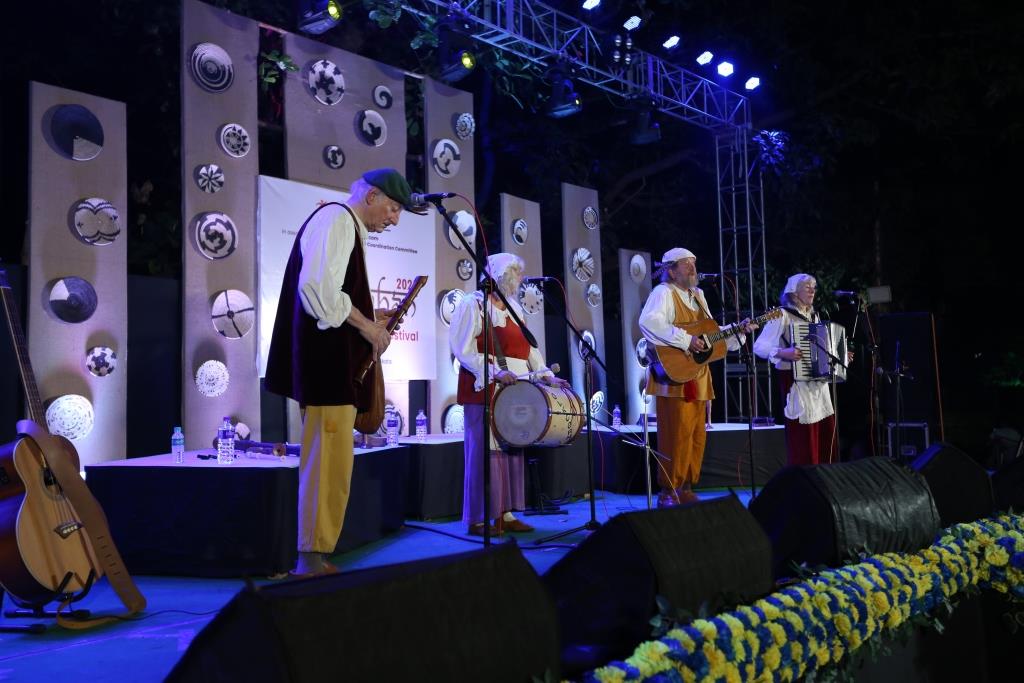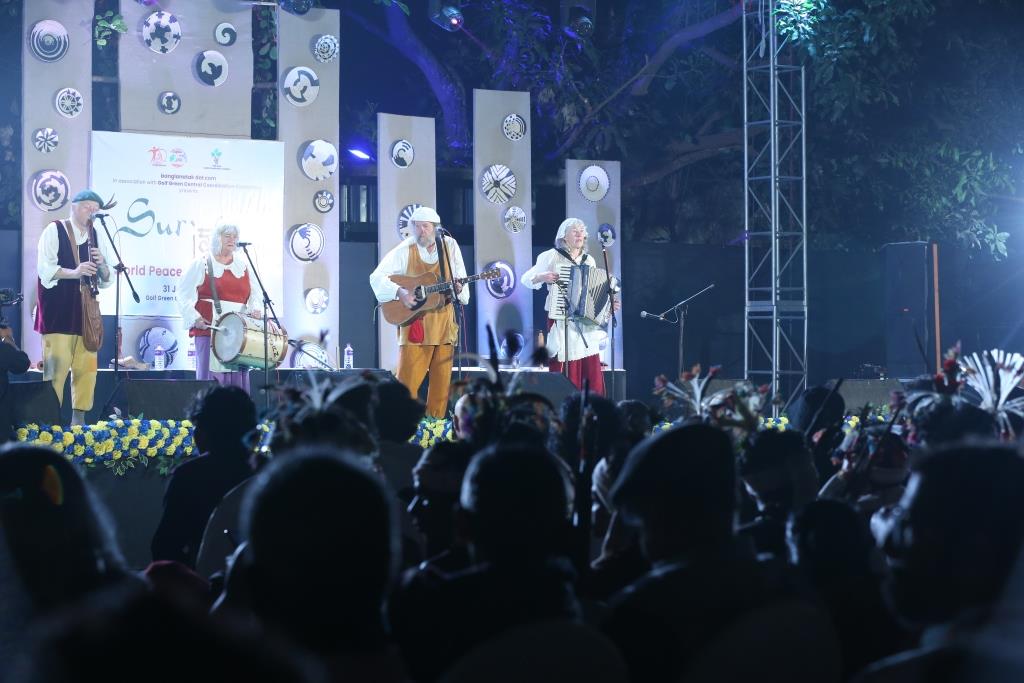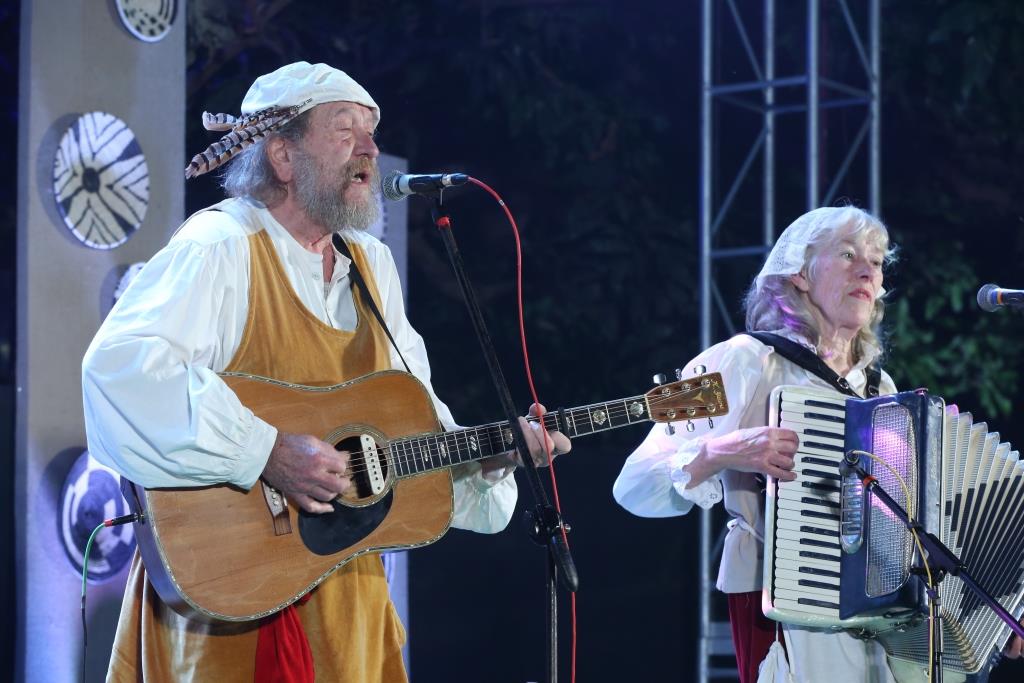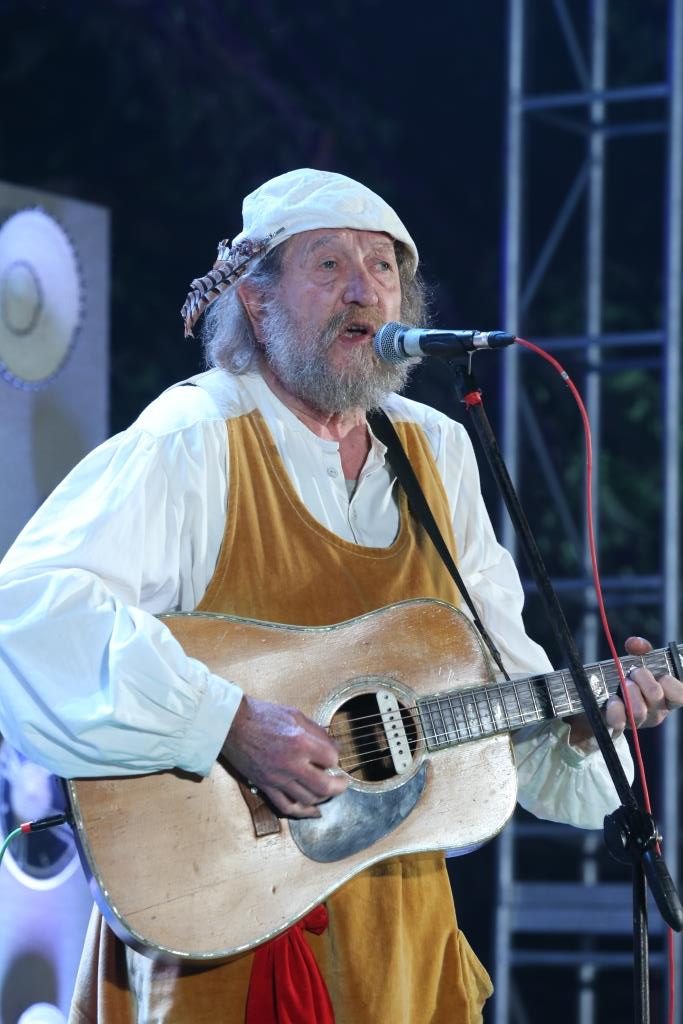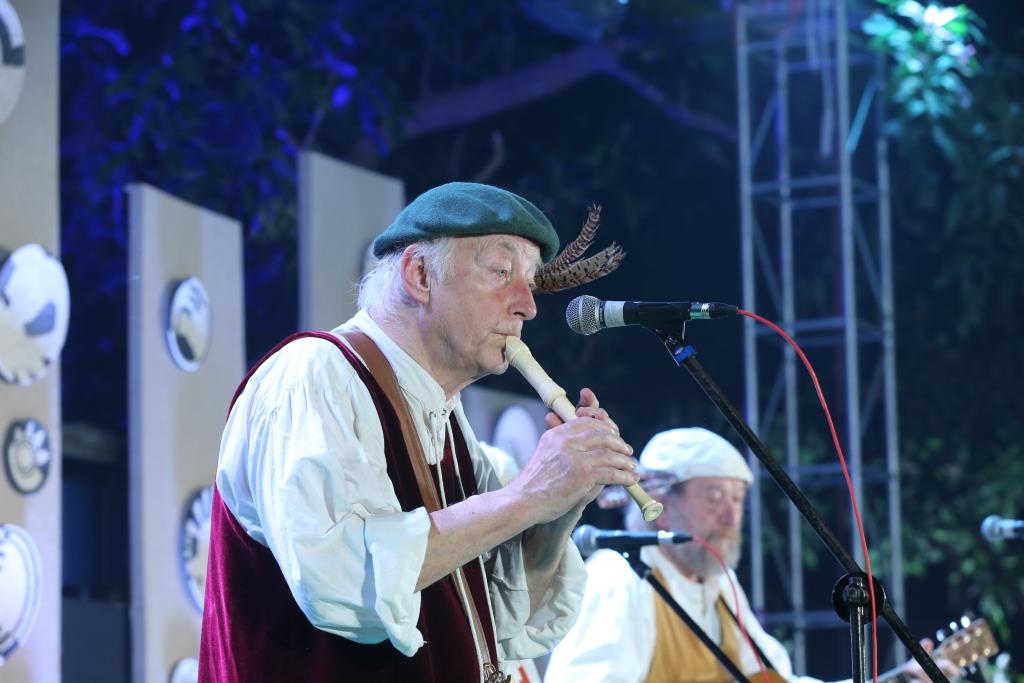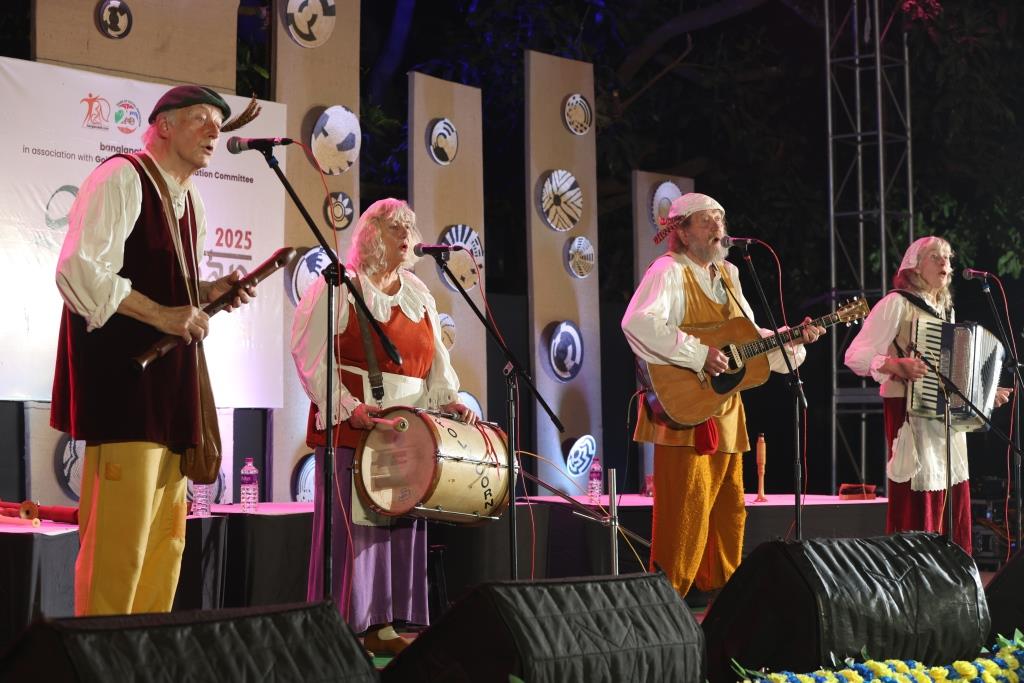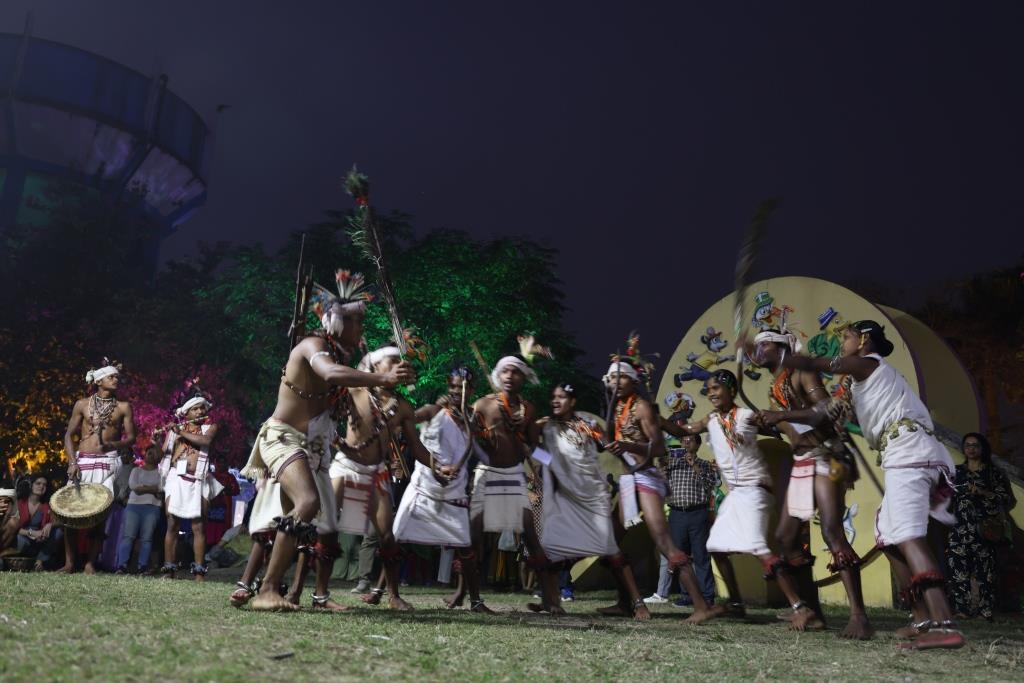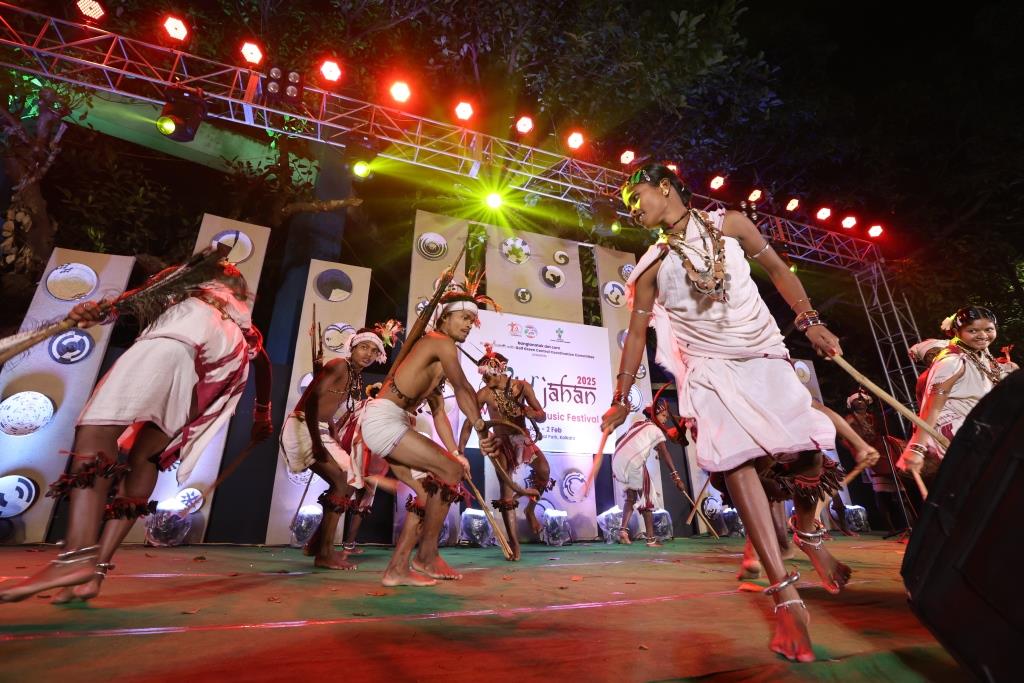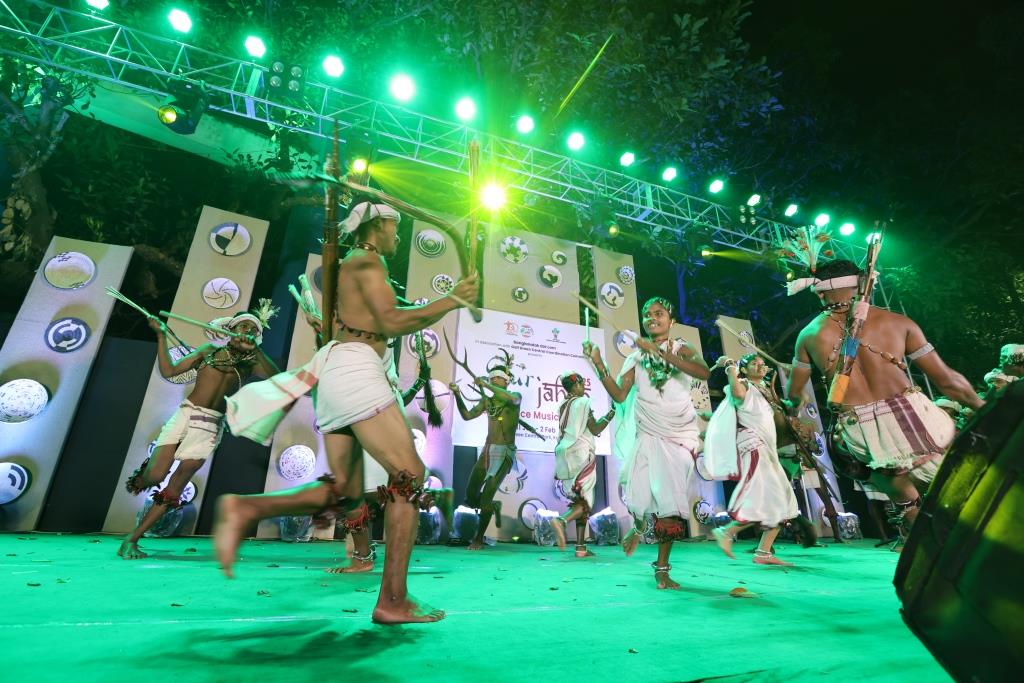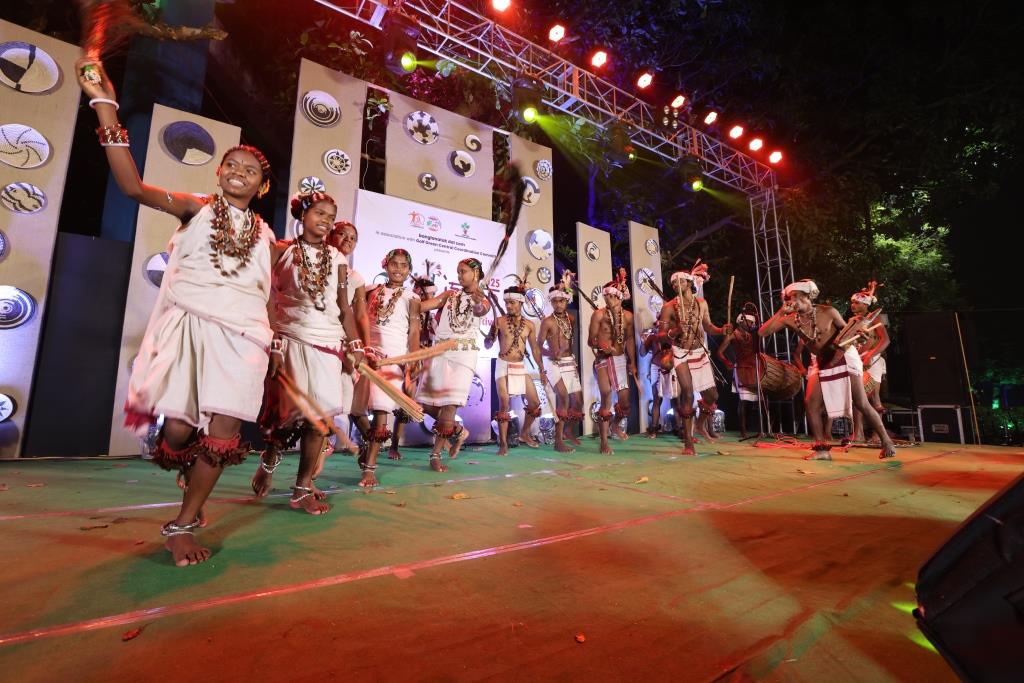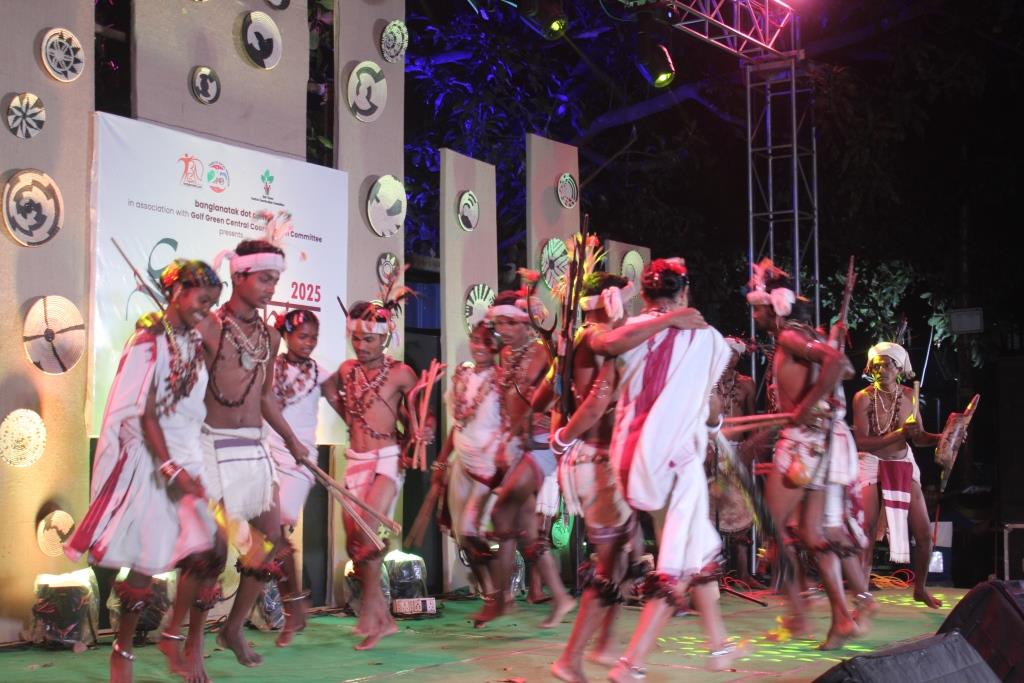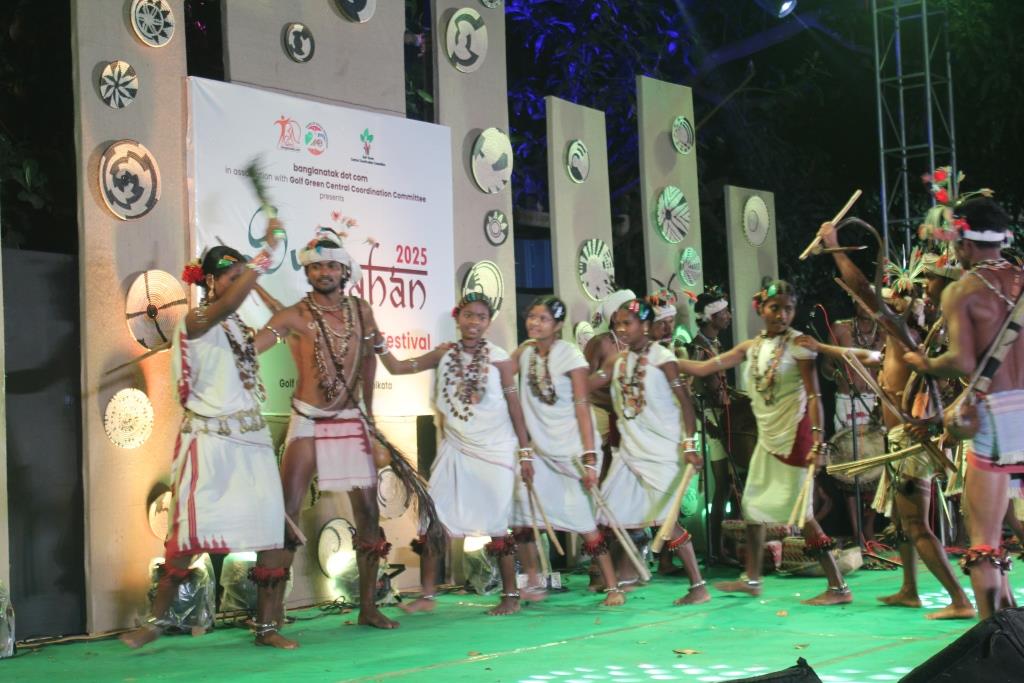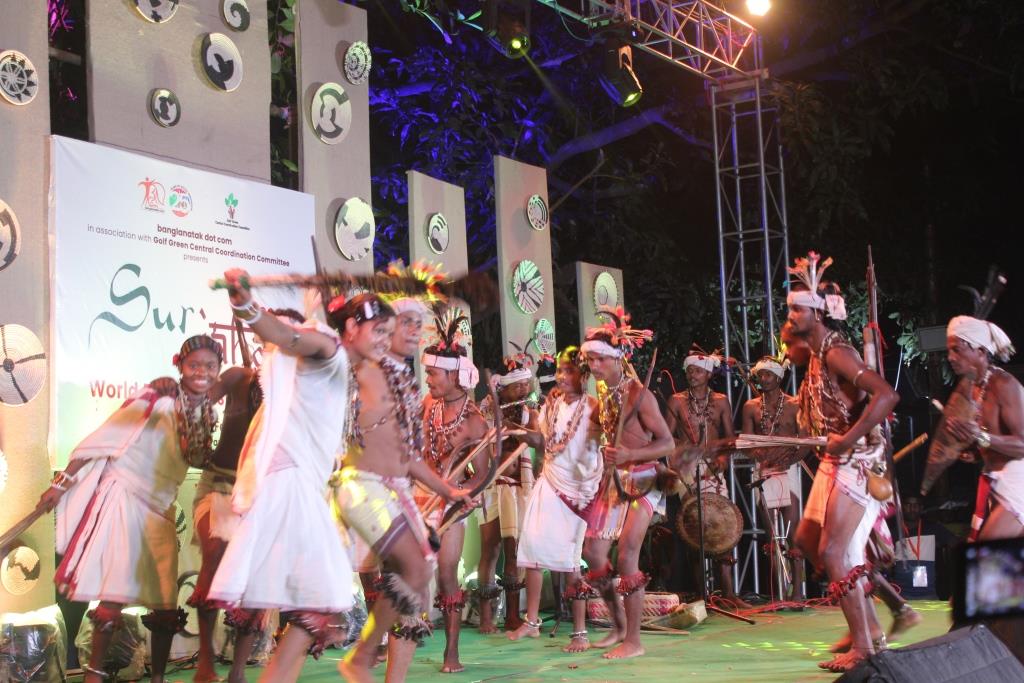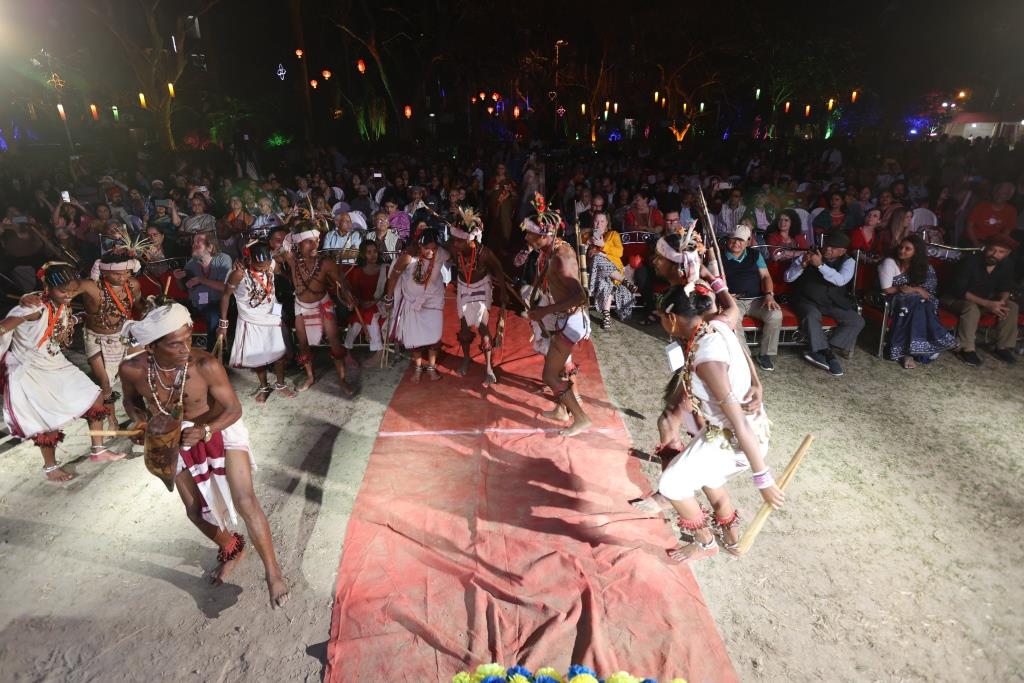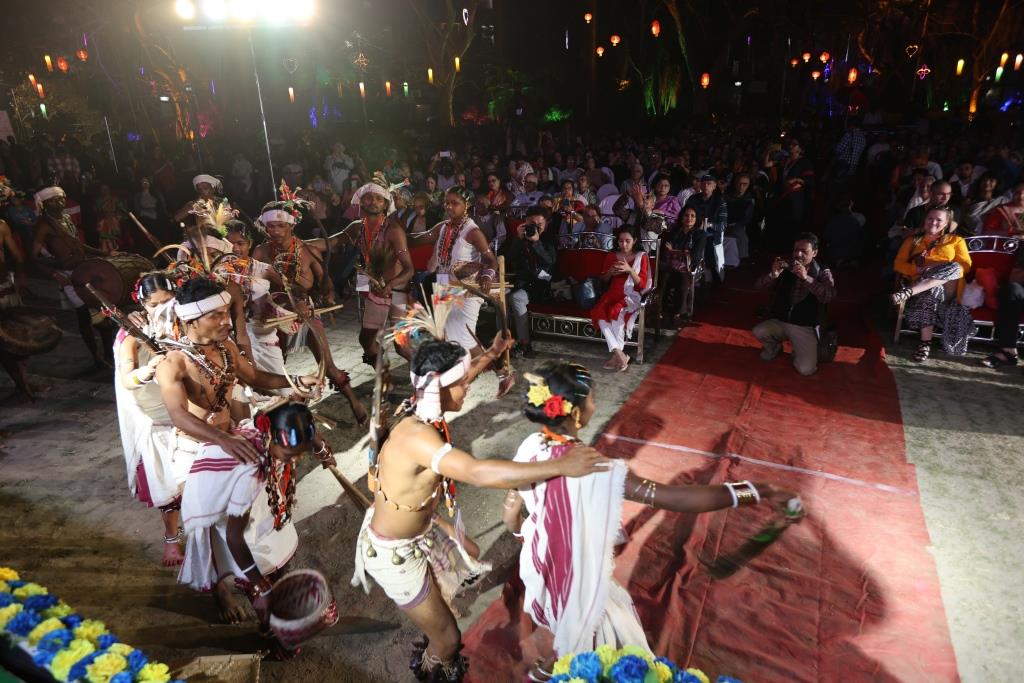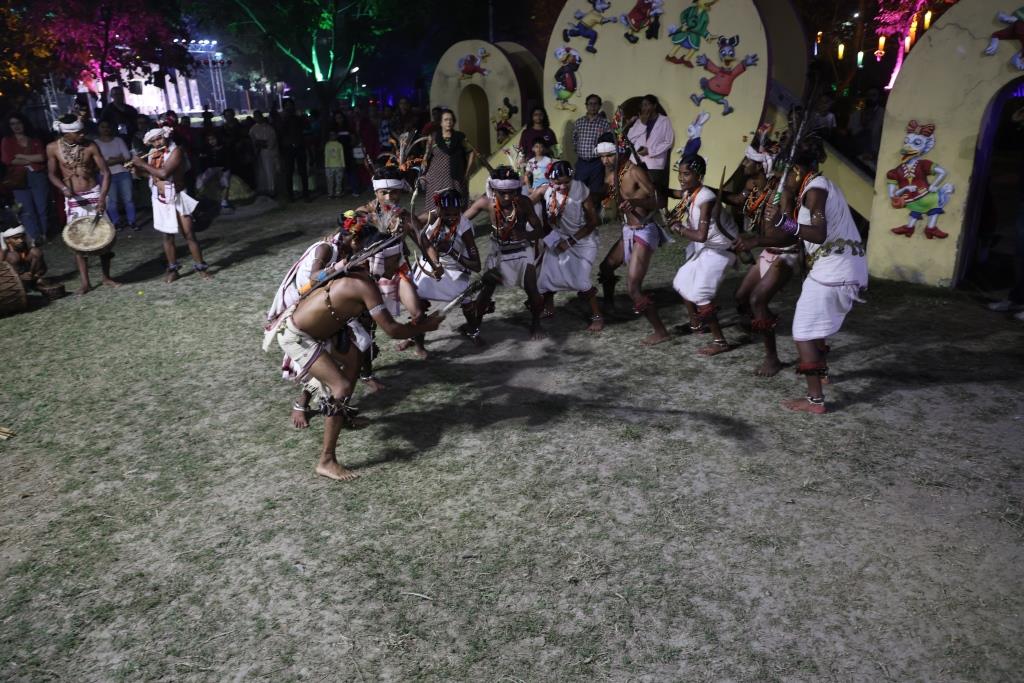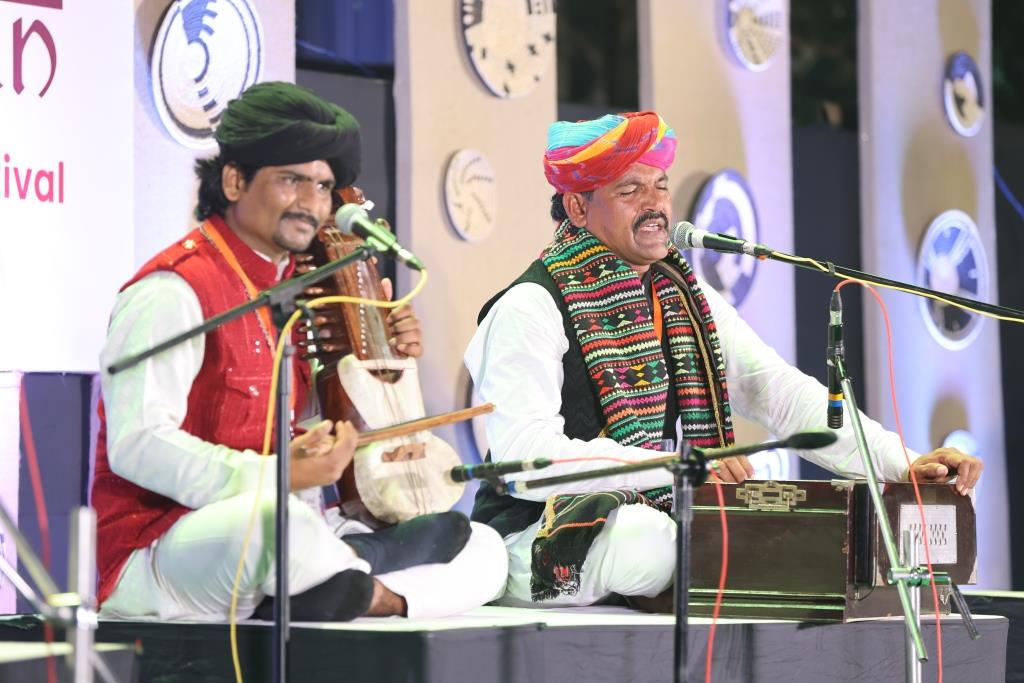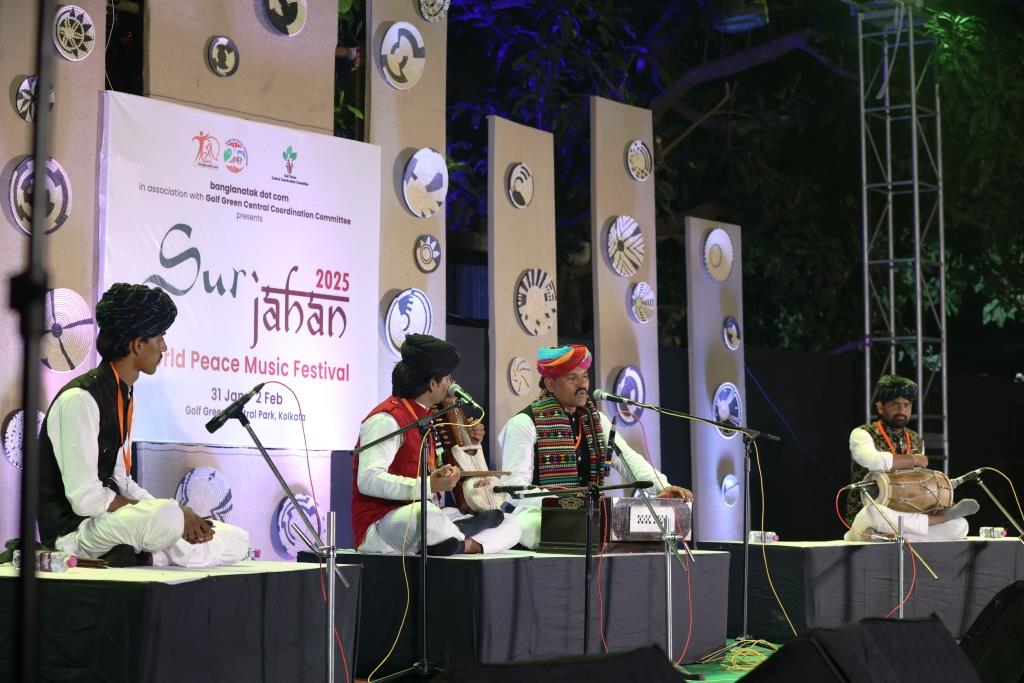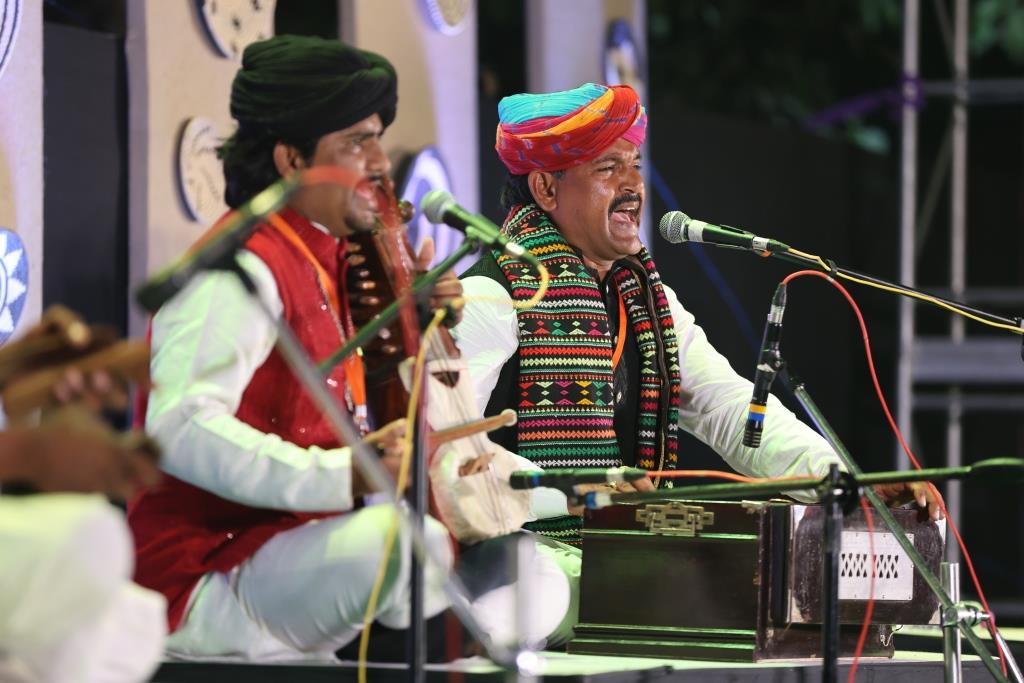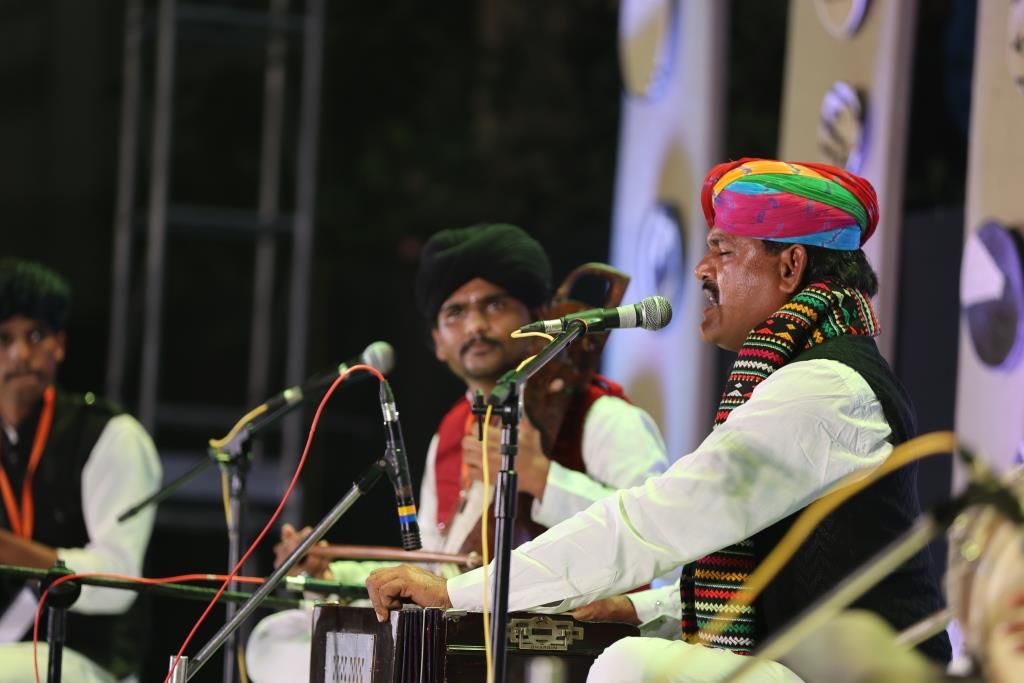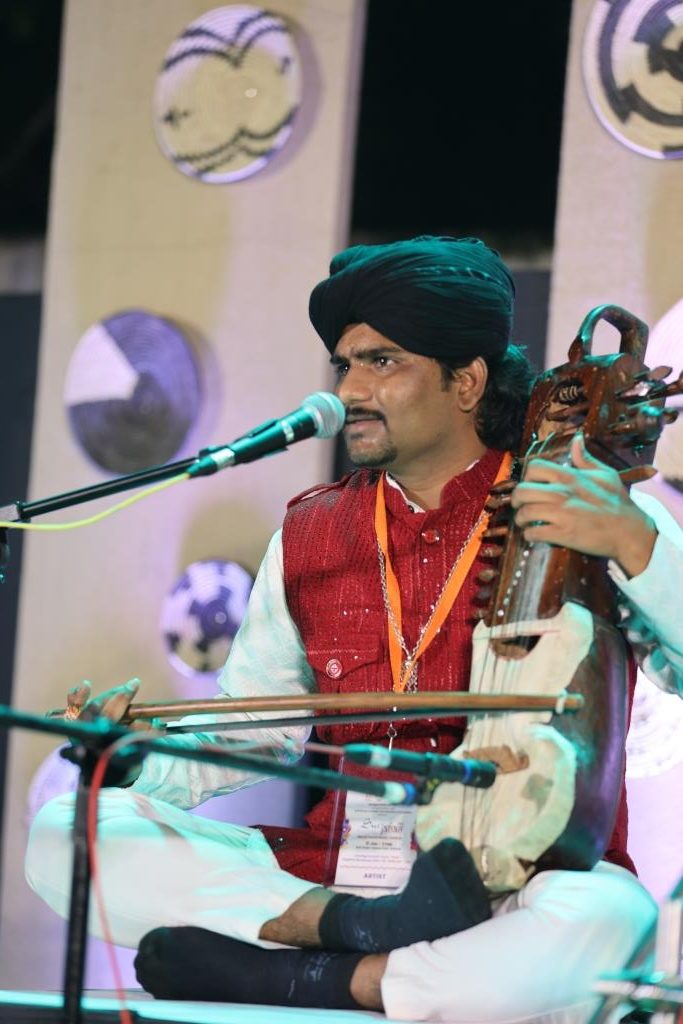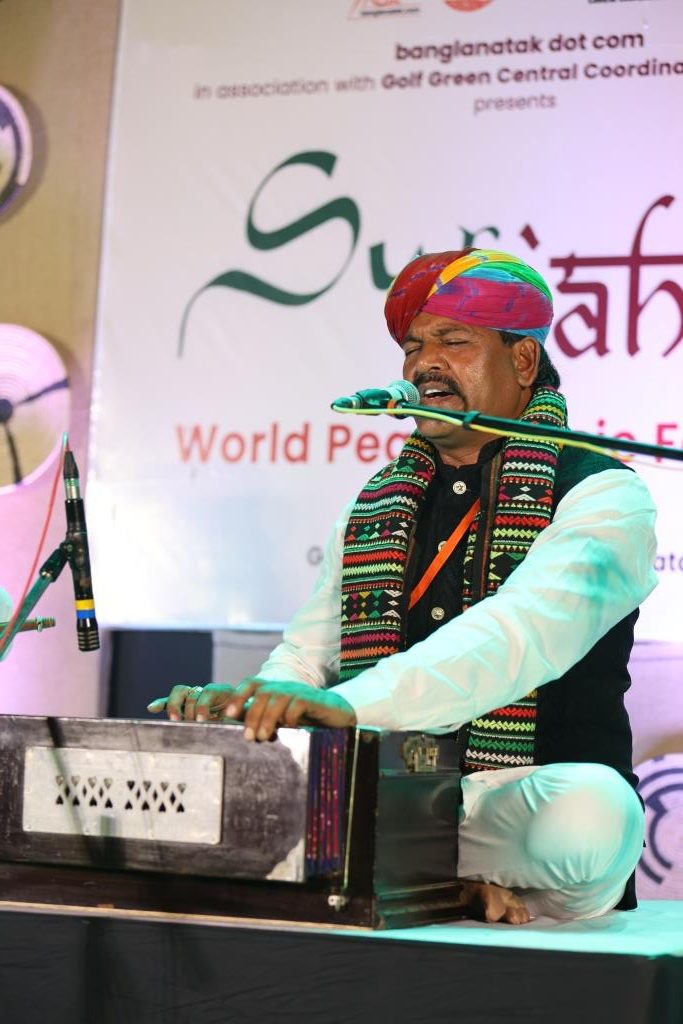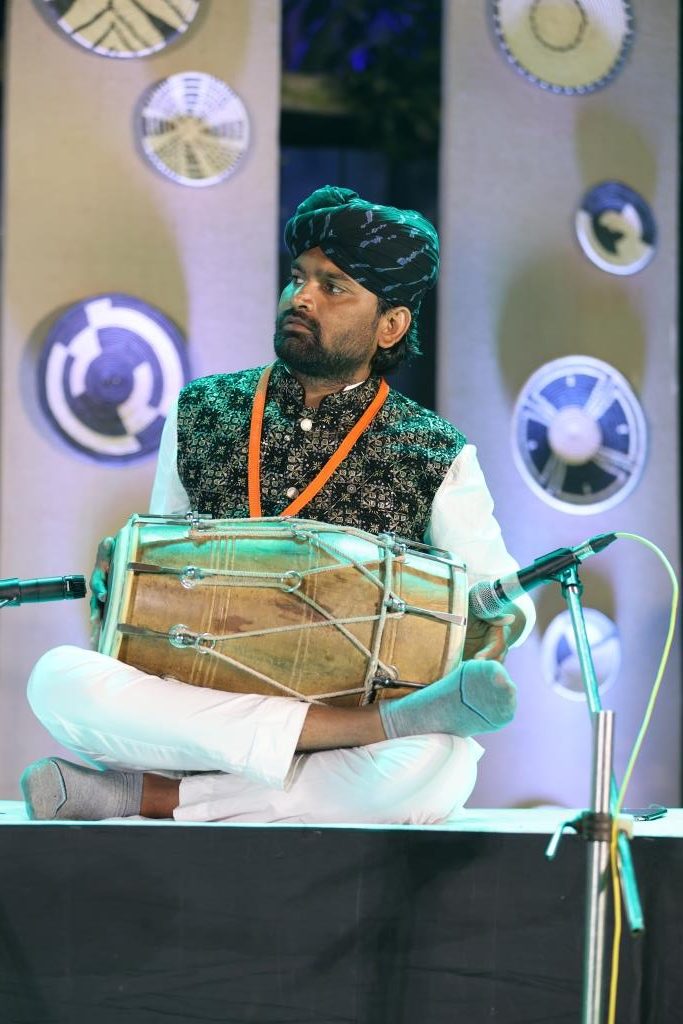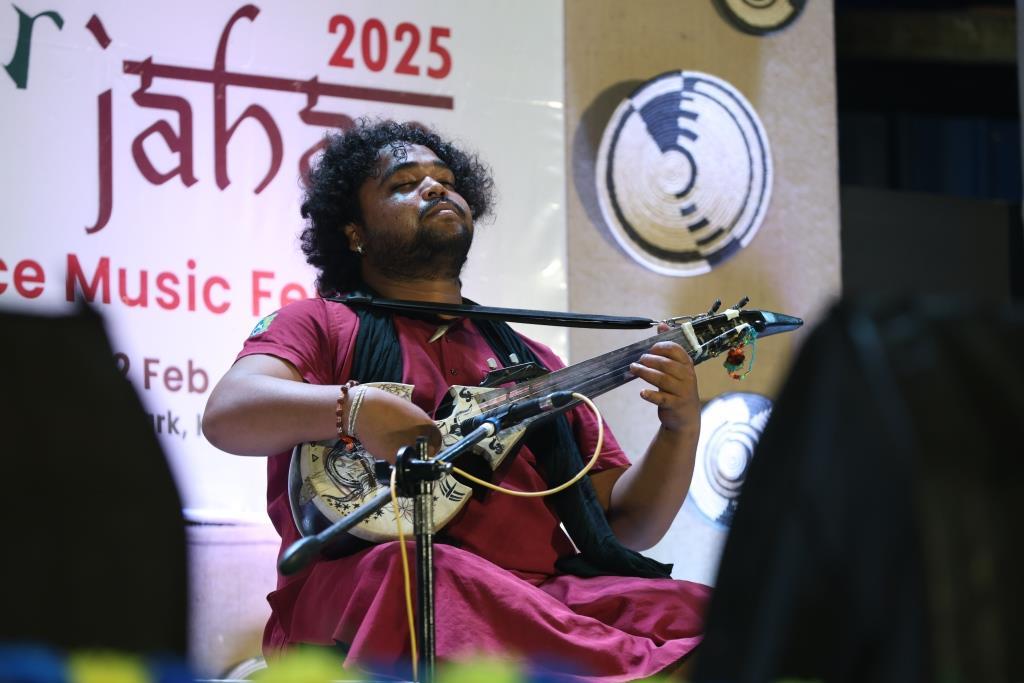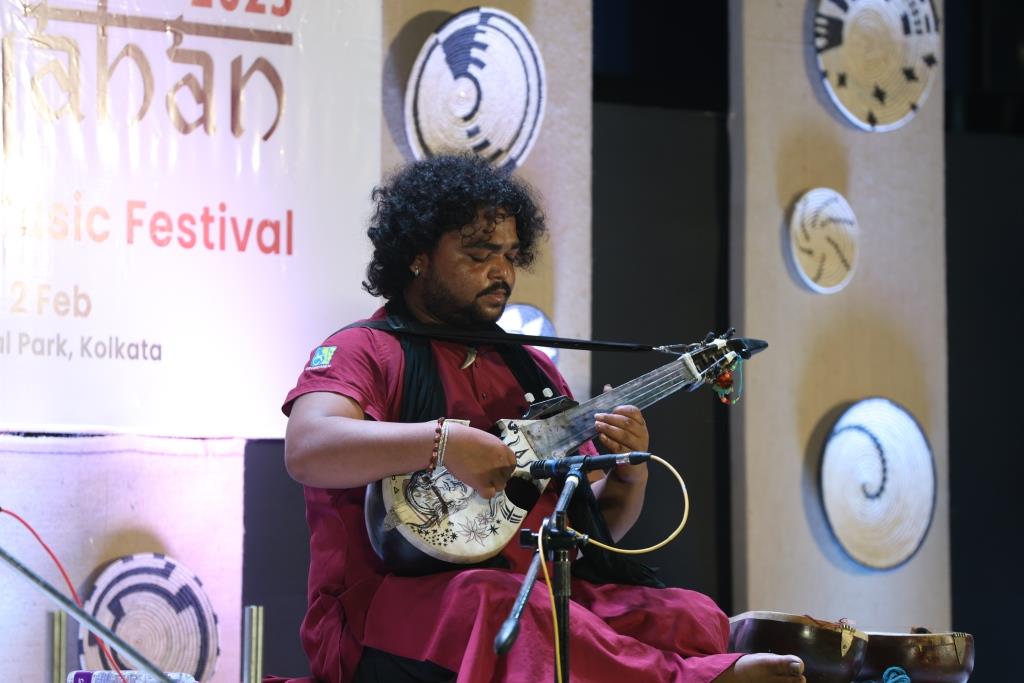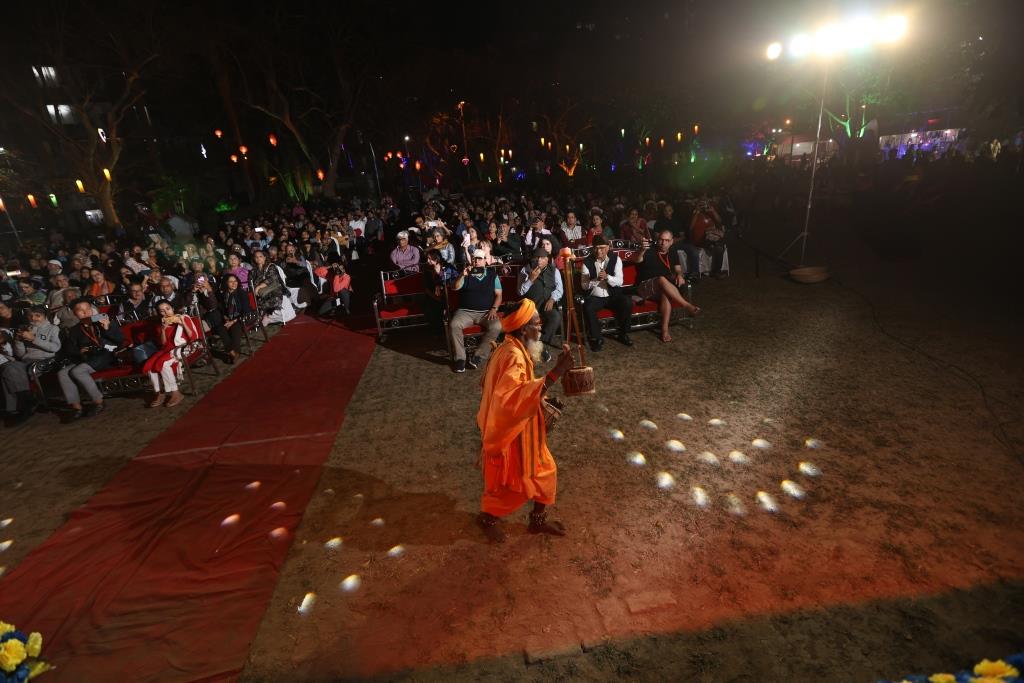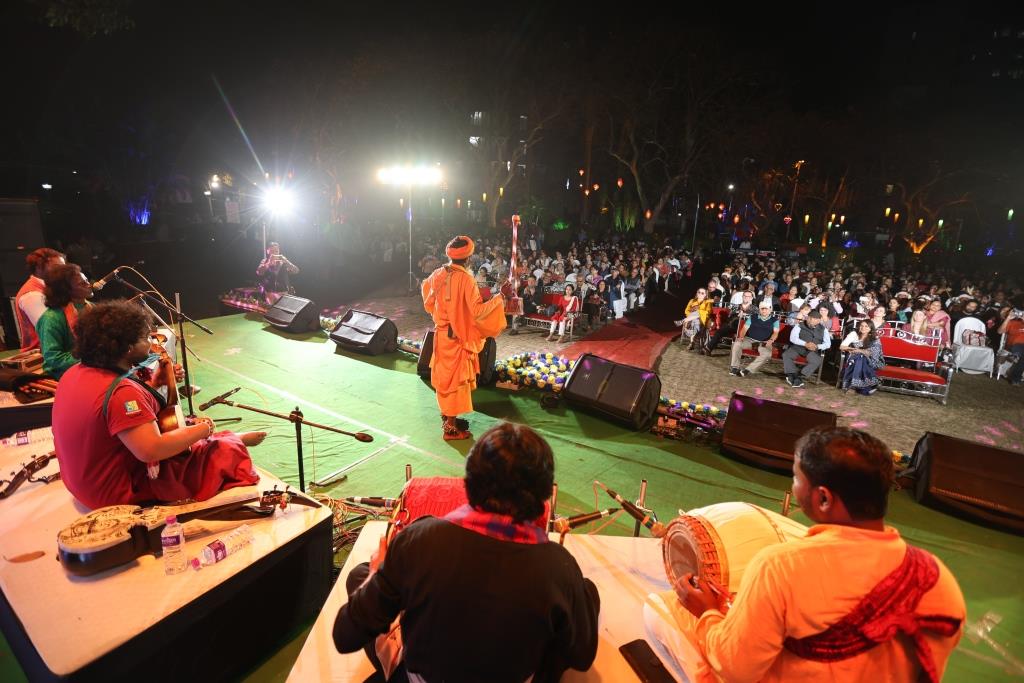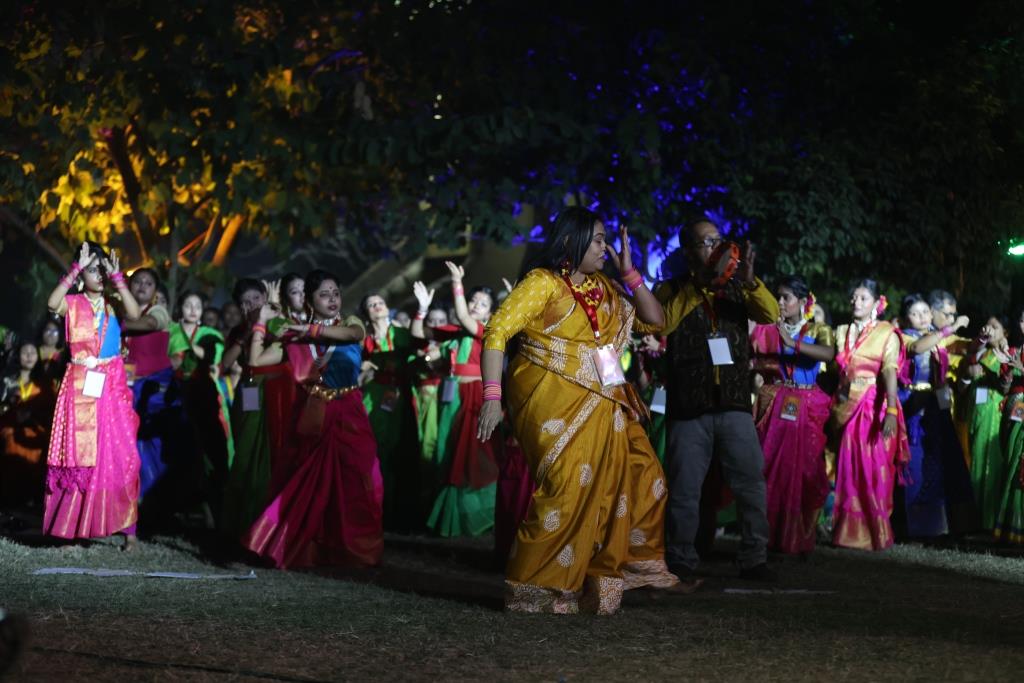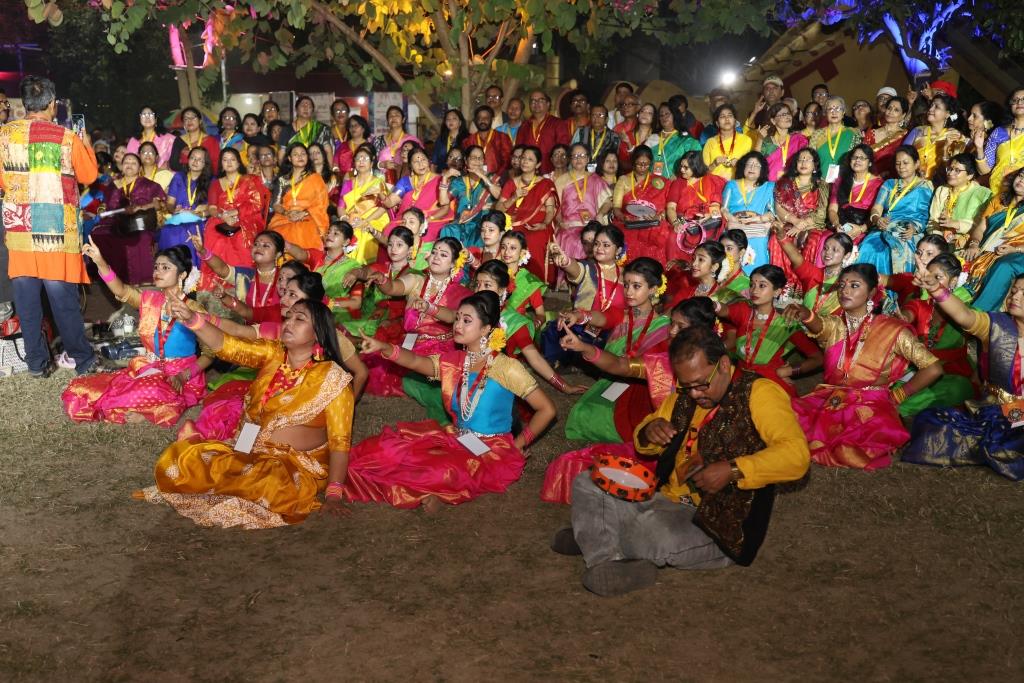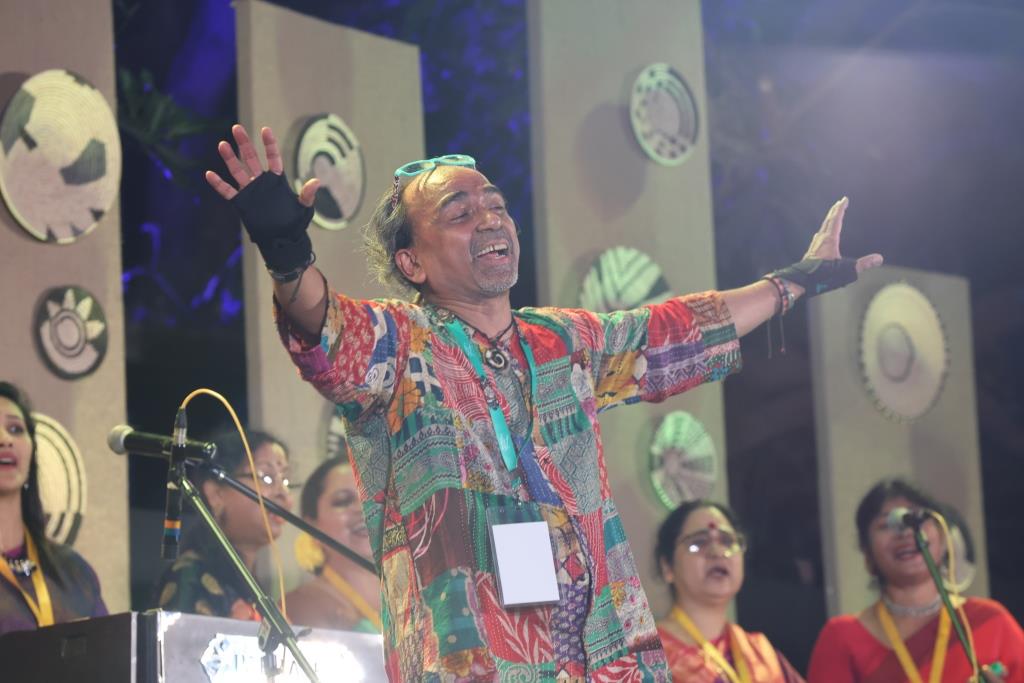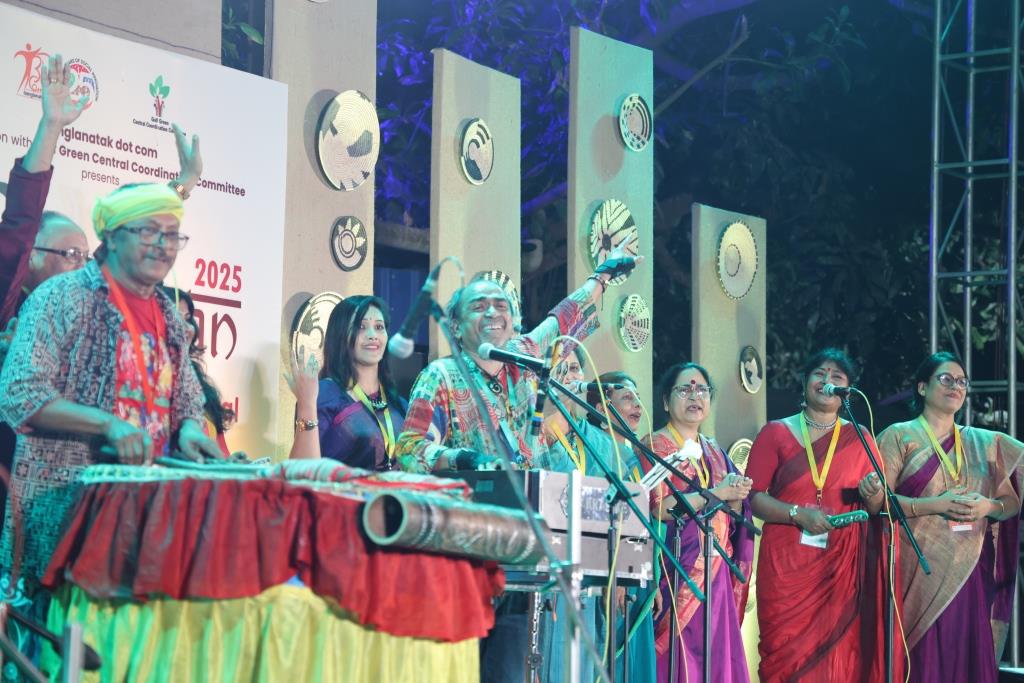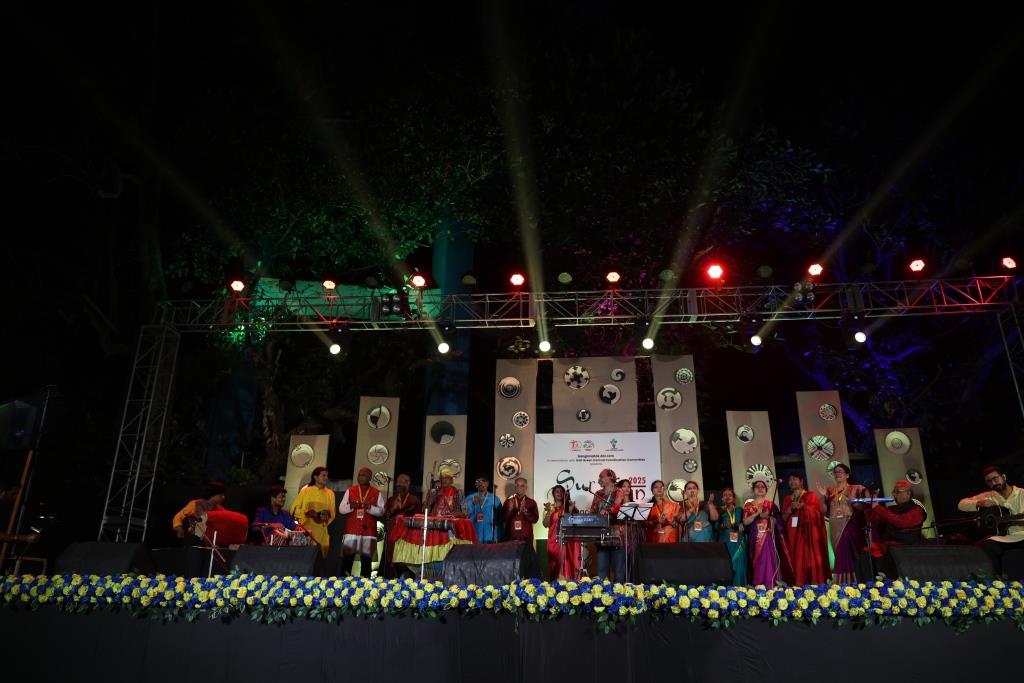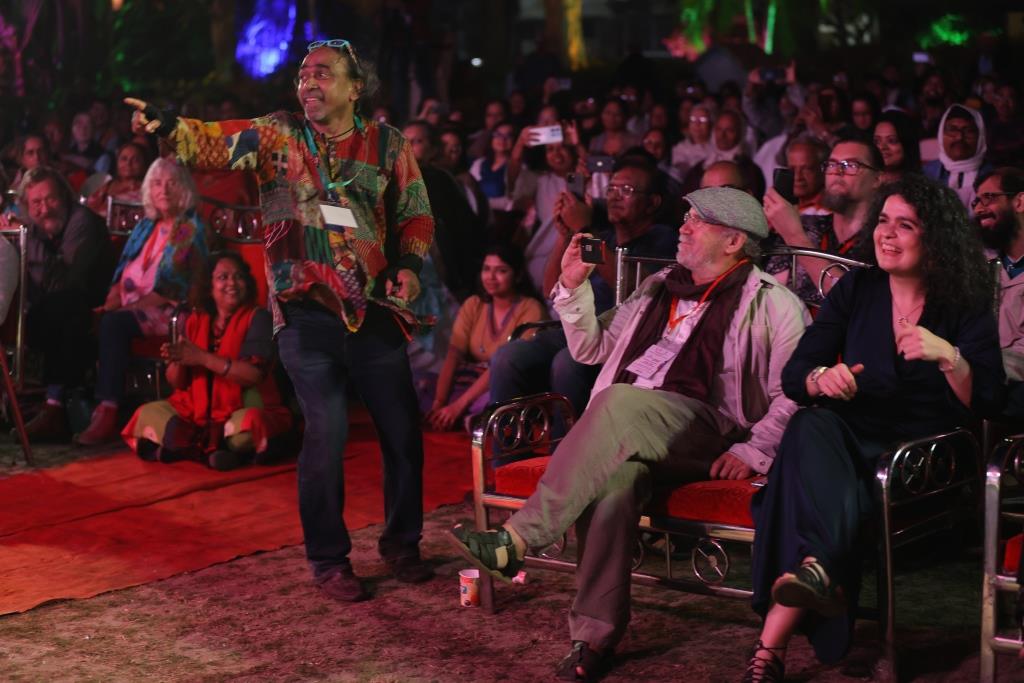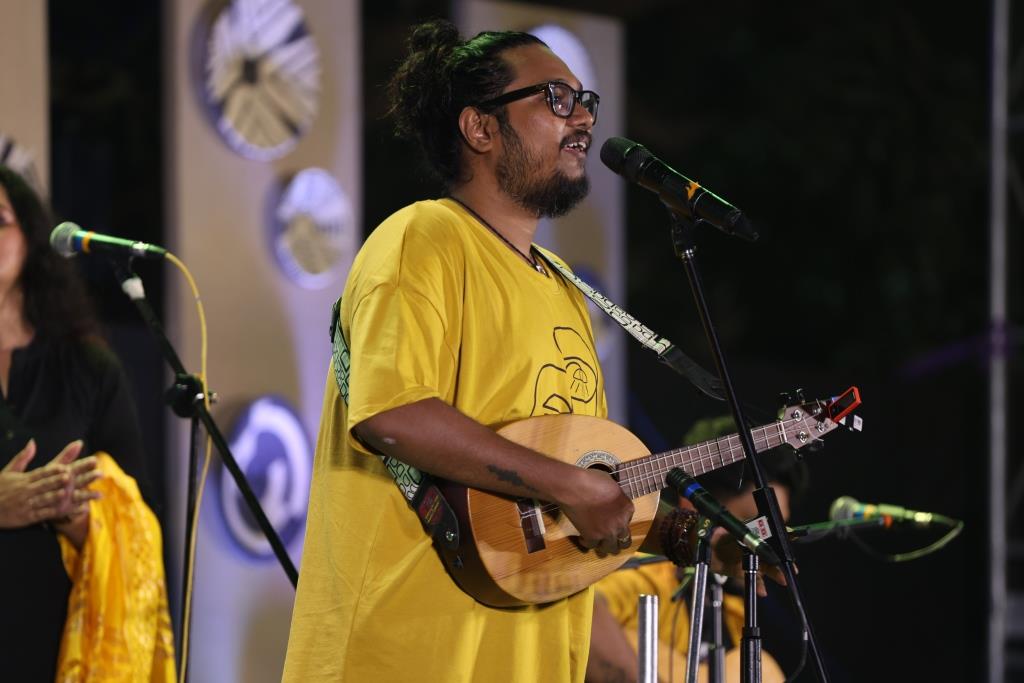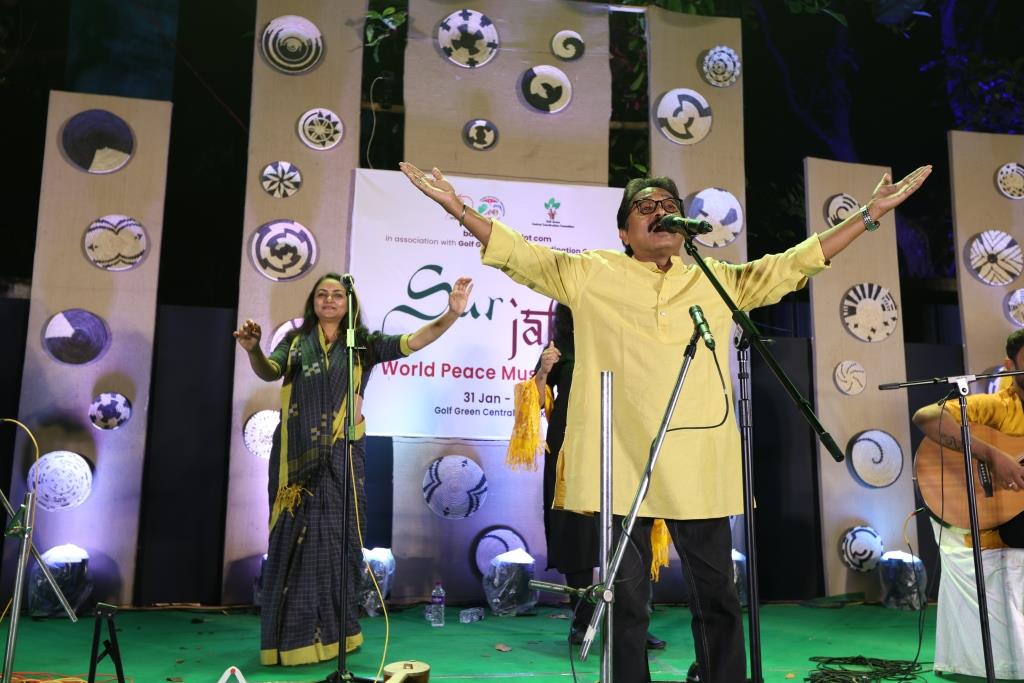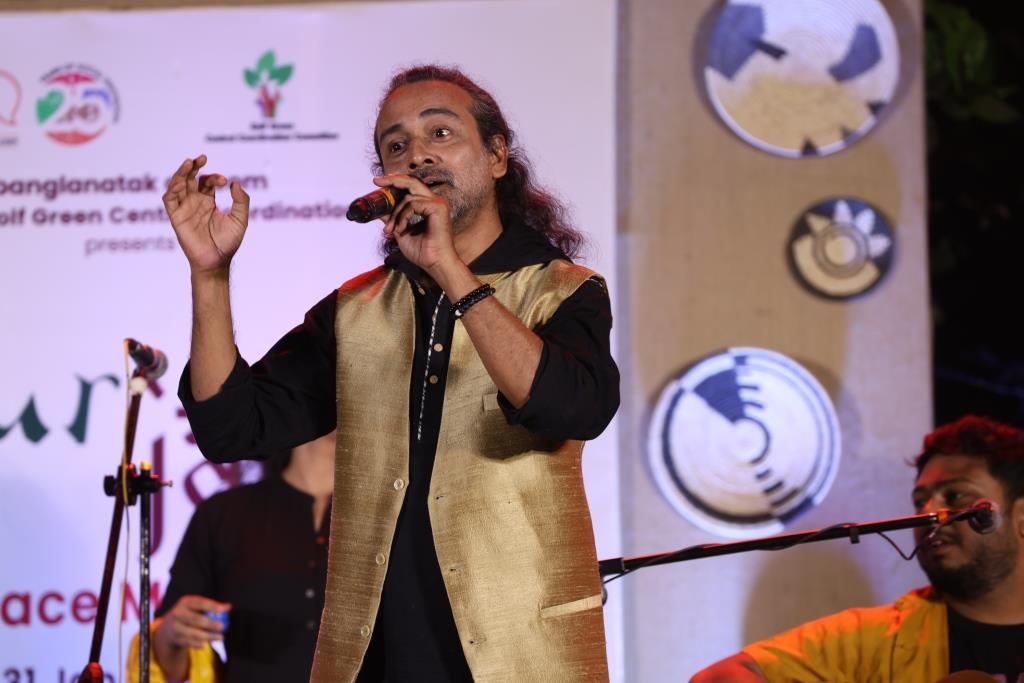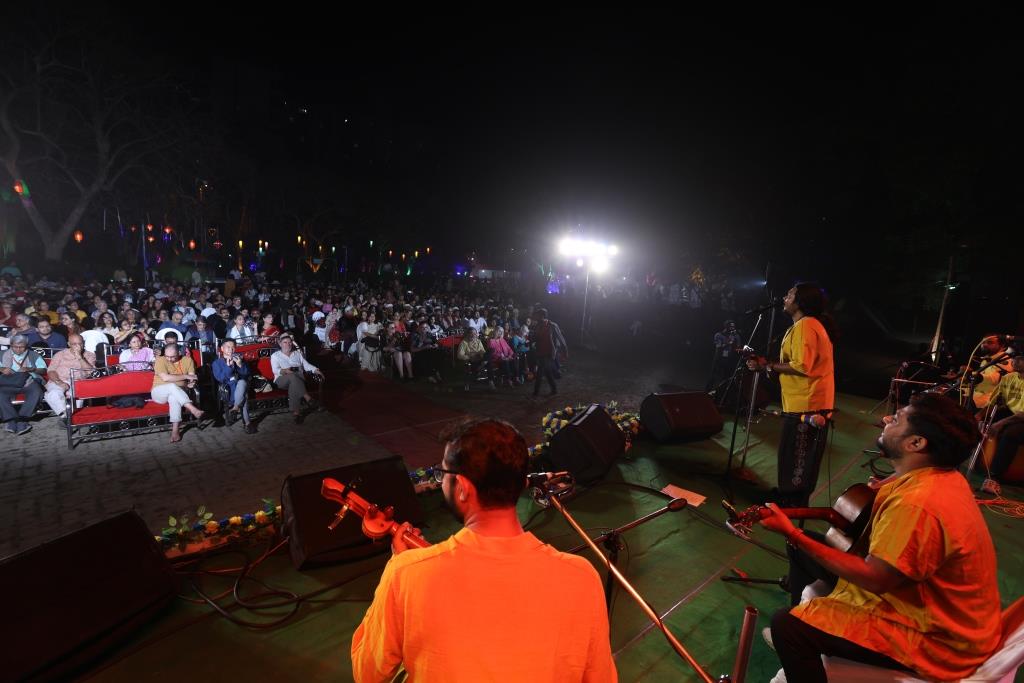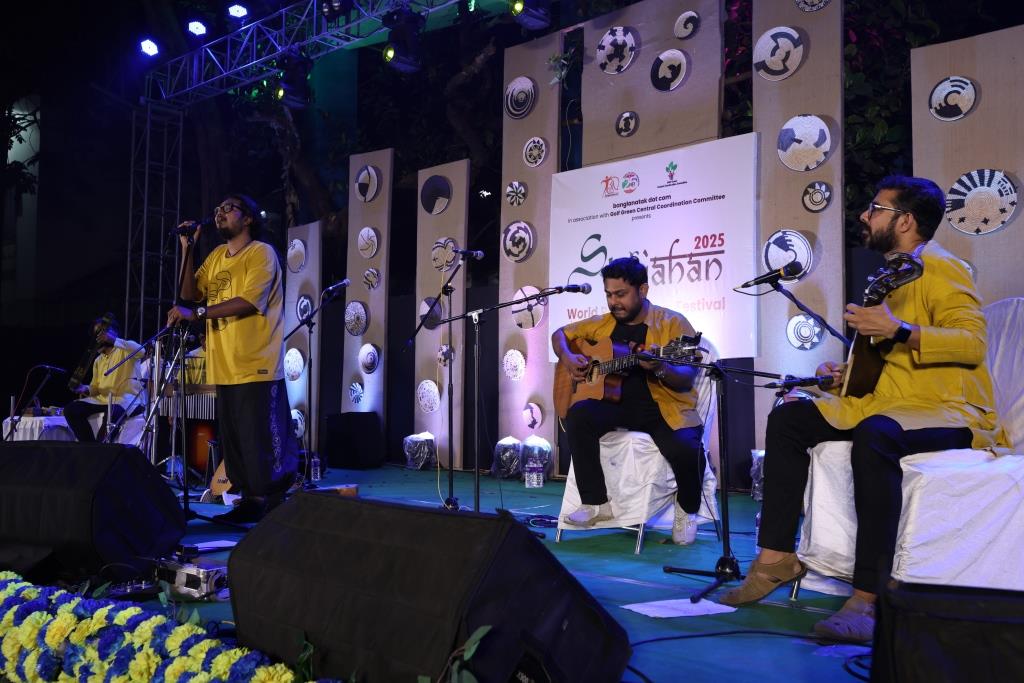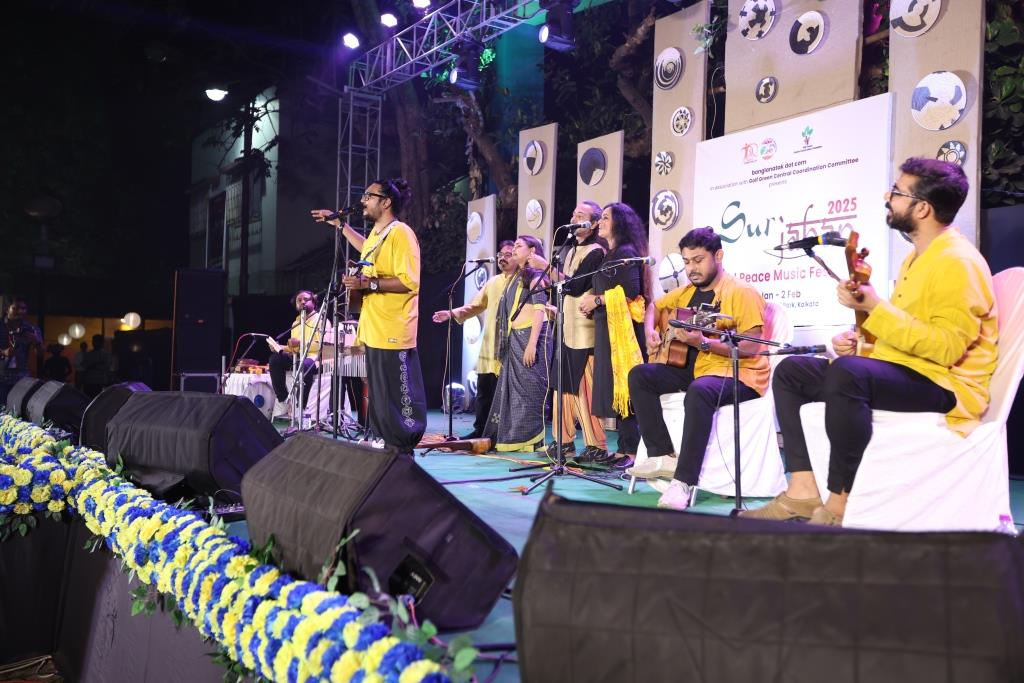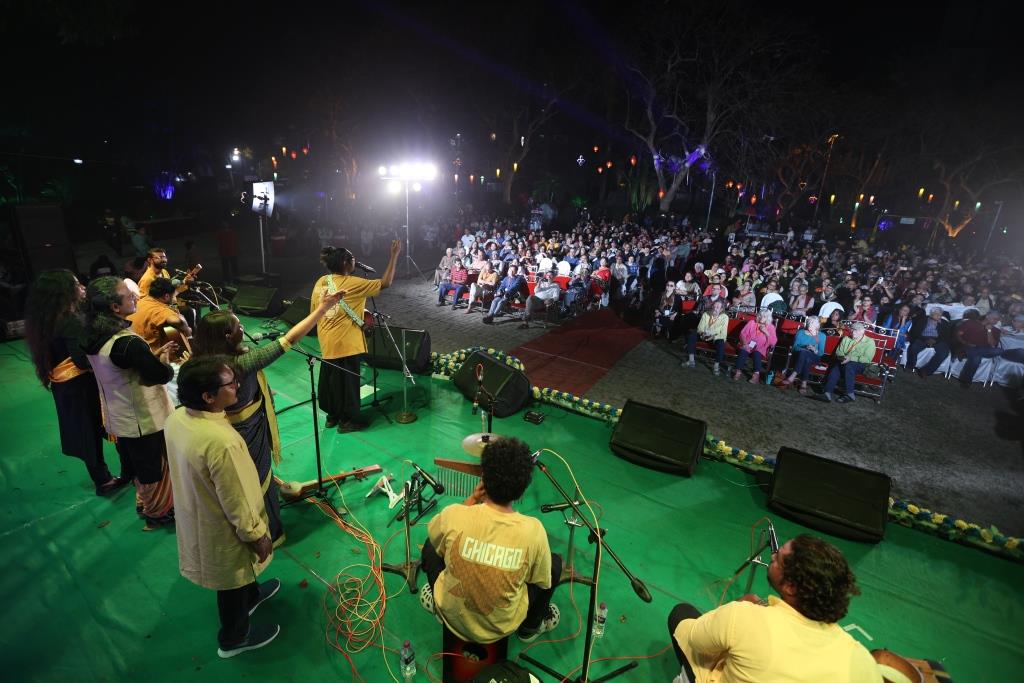Ale Möller Trio (Sweden) 
Led by the legendary Ale Möller, known as the "Godfather of Nordic Music," the trio presented an electrifying fusion of Scandinavian folk traditions. Using instruments like the mandola, flute, shawm, and cowhorn, they took the audience on a dynamic musical journey. Ale Möller, a multi-instrumentalist, explained how Sweden’s folk music has evolved under diverse cultural influences, performing pieces inspired by the Middle East and South Africa. Their rhythm-based experimental numbers, high-energy stage presence, and dramatic shifts in mood captivated the audience, earning them a standing ovation.
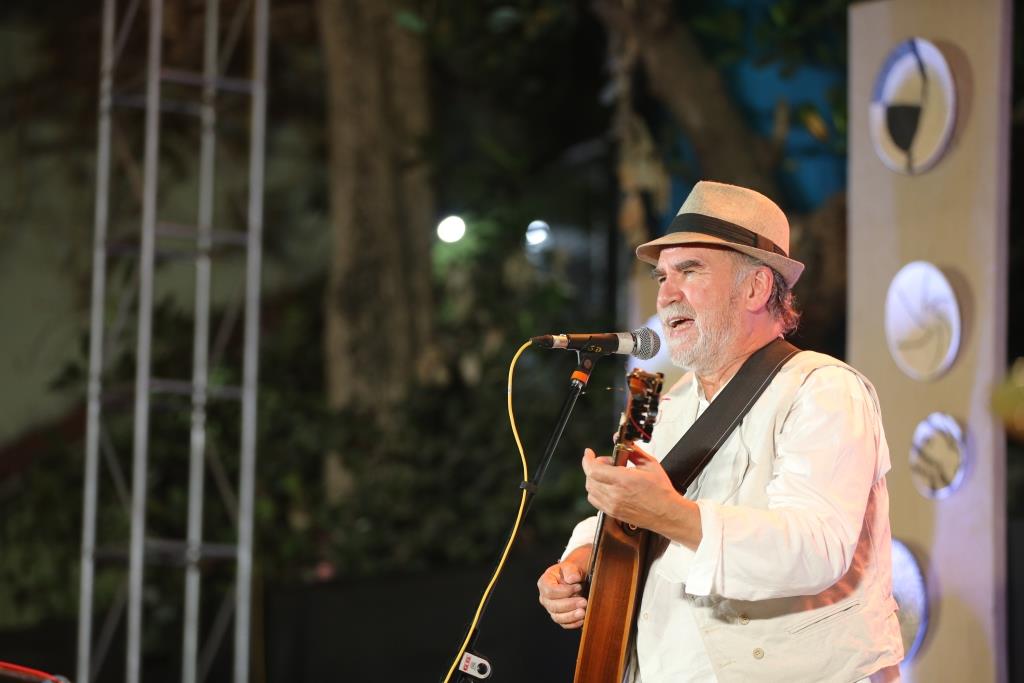
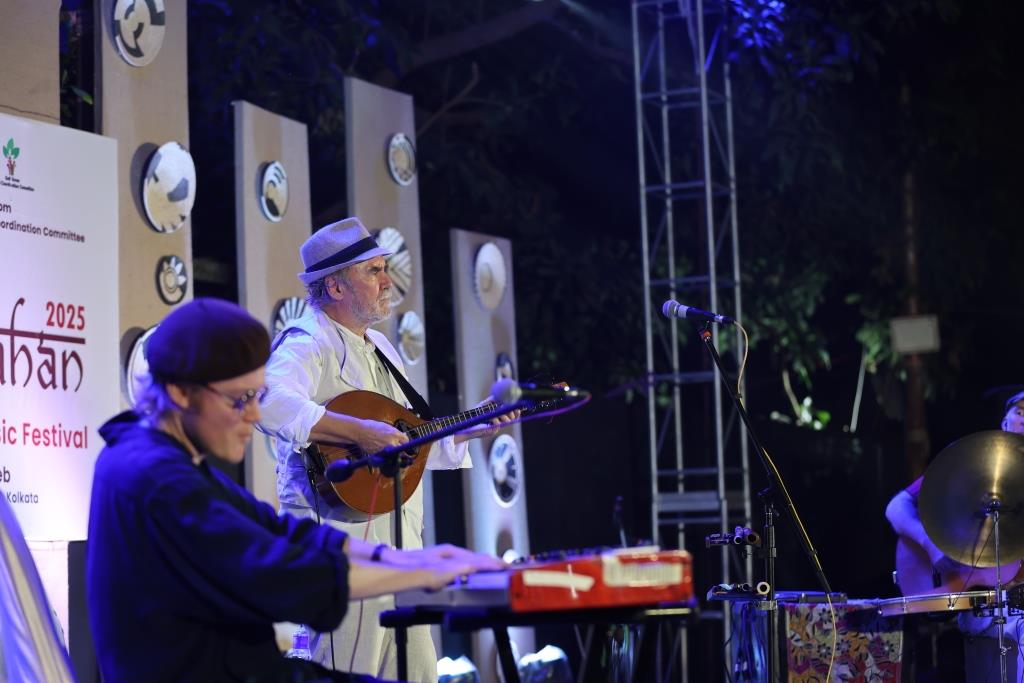
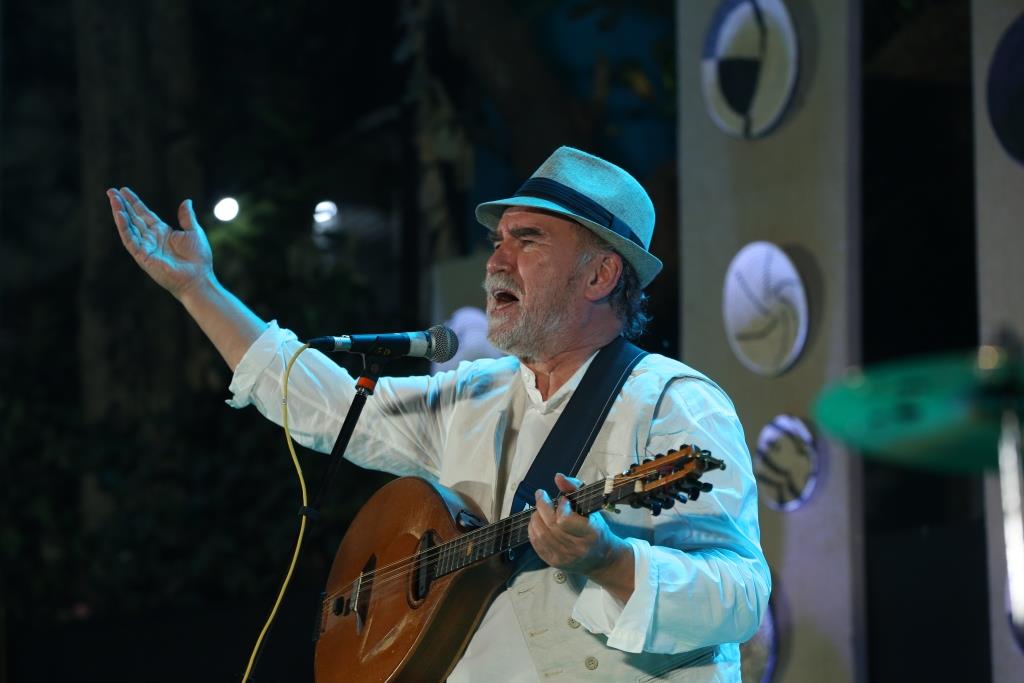
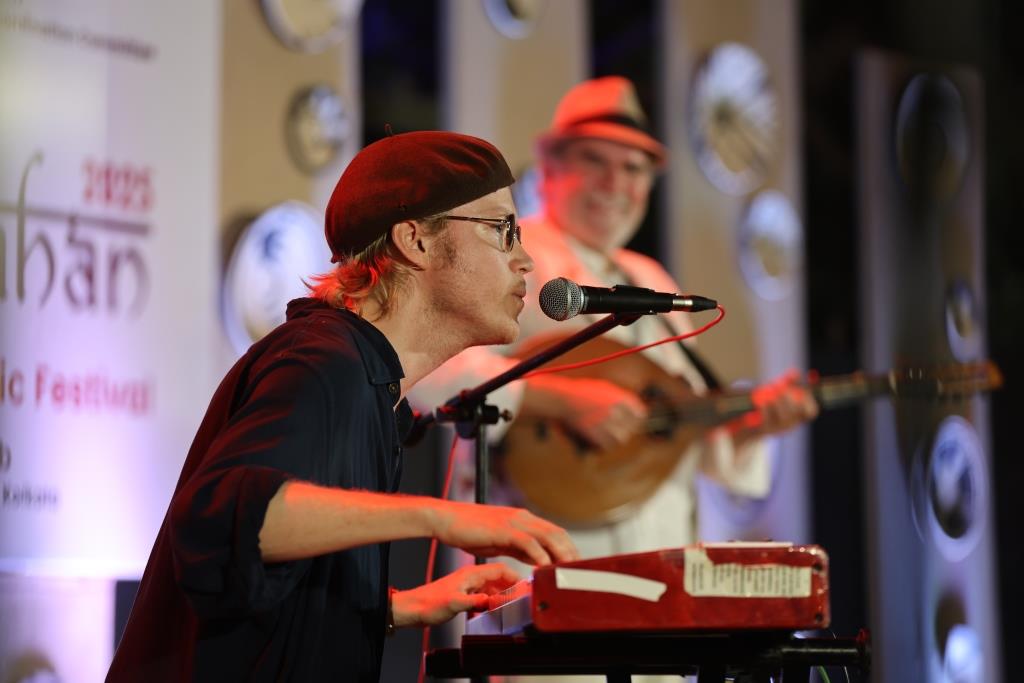
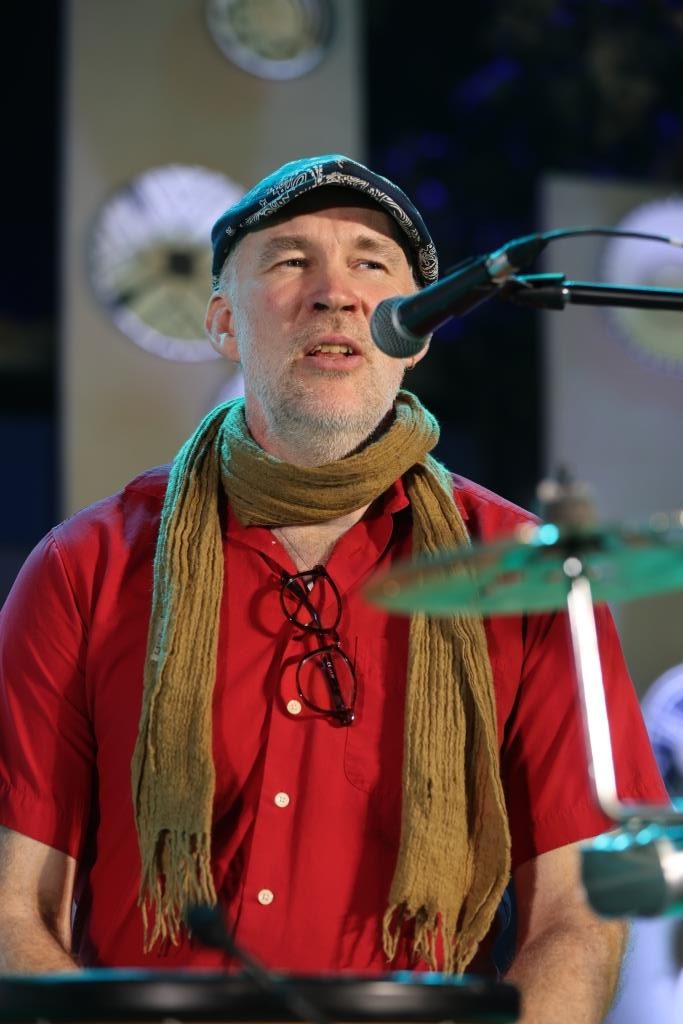
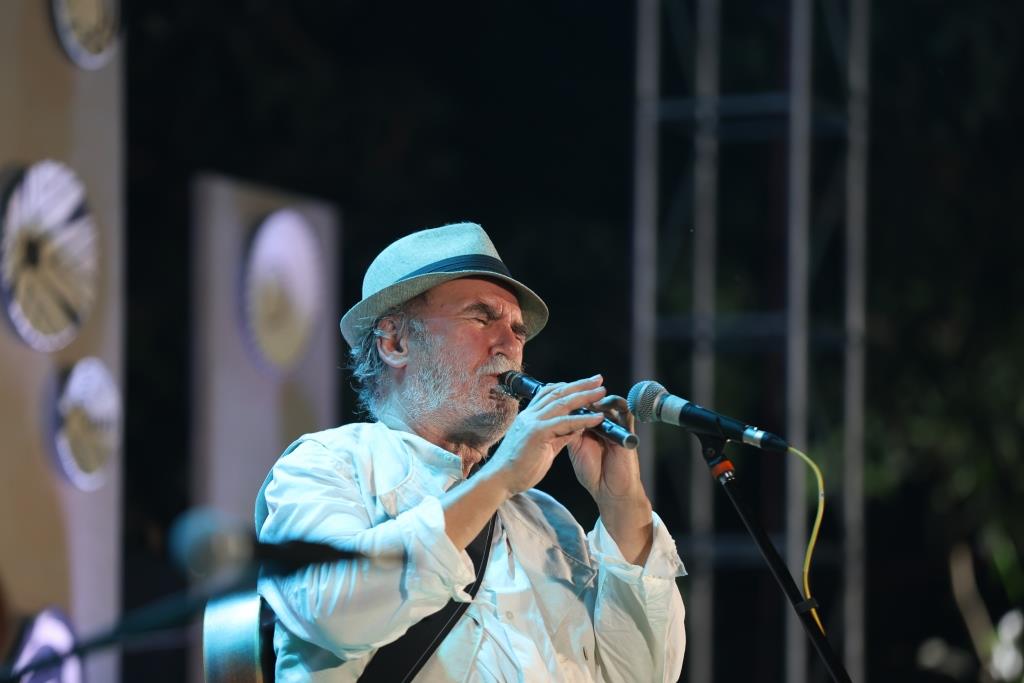
 Umbra Ensemble (Iceland)
Umbra Ensemble (Iceland)
An all-women ensemble blending sacred and secular medieval tunes with traditional Icelandic folk music. Their performance was a powerful showcase of rich vocal harmonies and historical instruments, reviving age old melodies. In the workshop, they spoke about Iceland’s deep connection with nature and culture, emphasizing that their traditions are scripted rather than passed down orally. A special highlight was their use of the traditional instrument Langspil, which added a distinctive Icelandic essence to their performance.
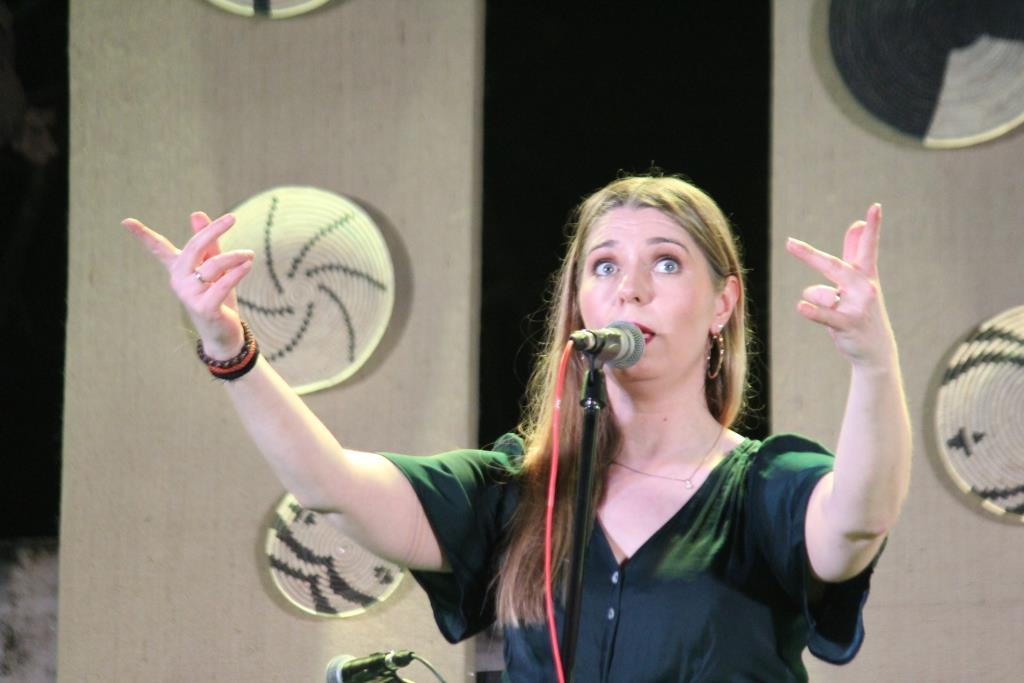
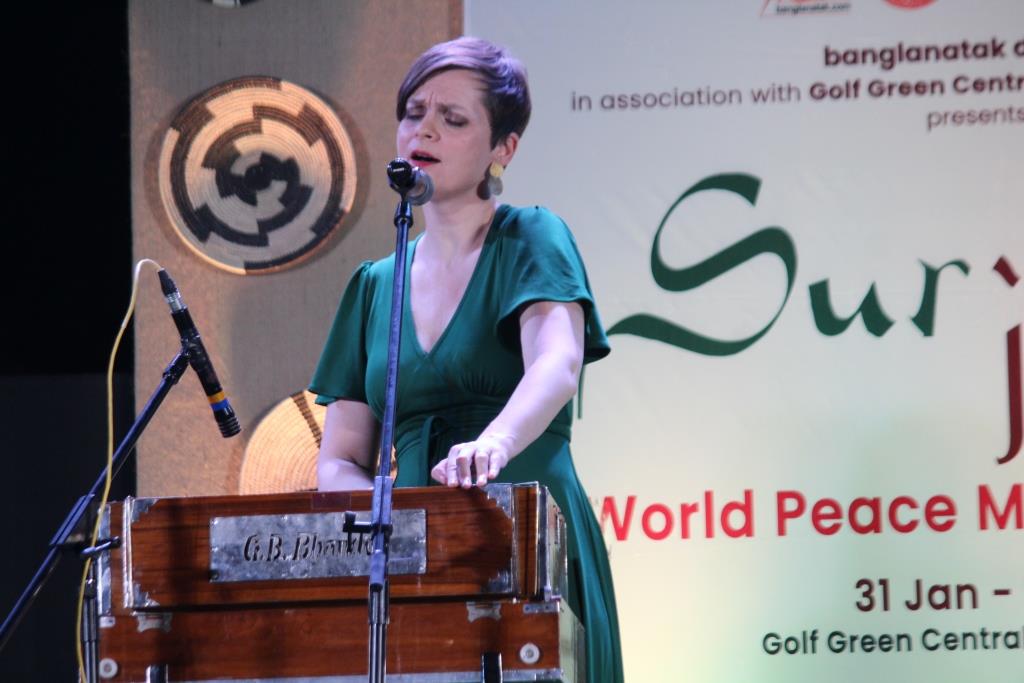
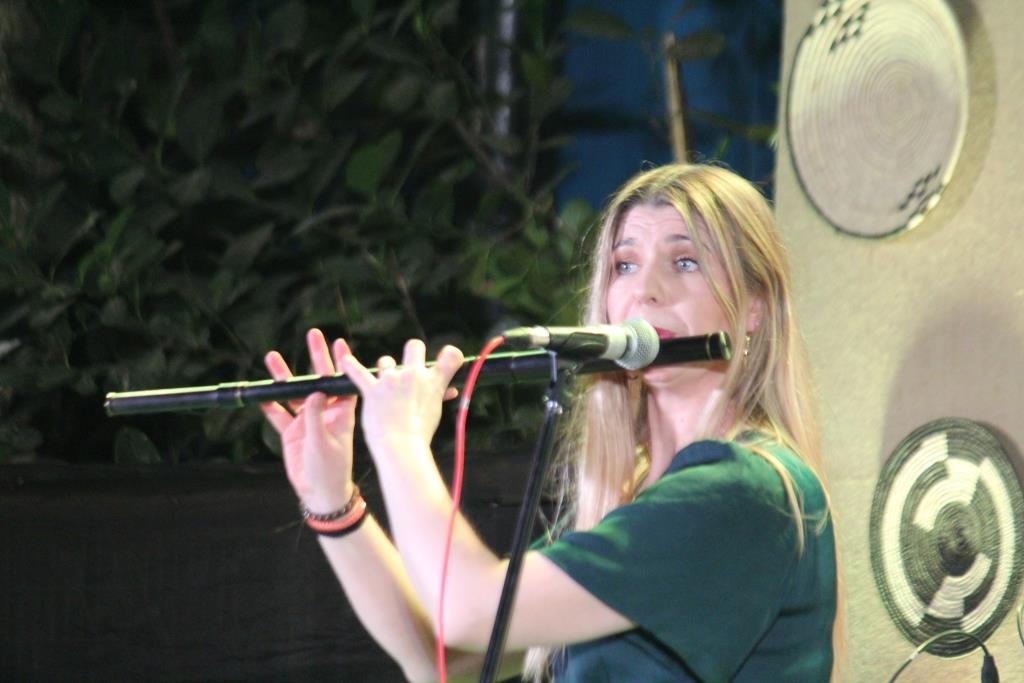
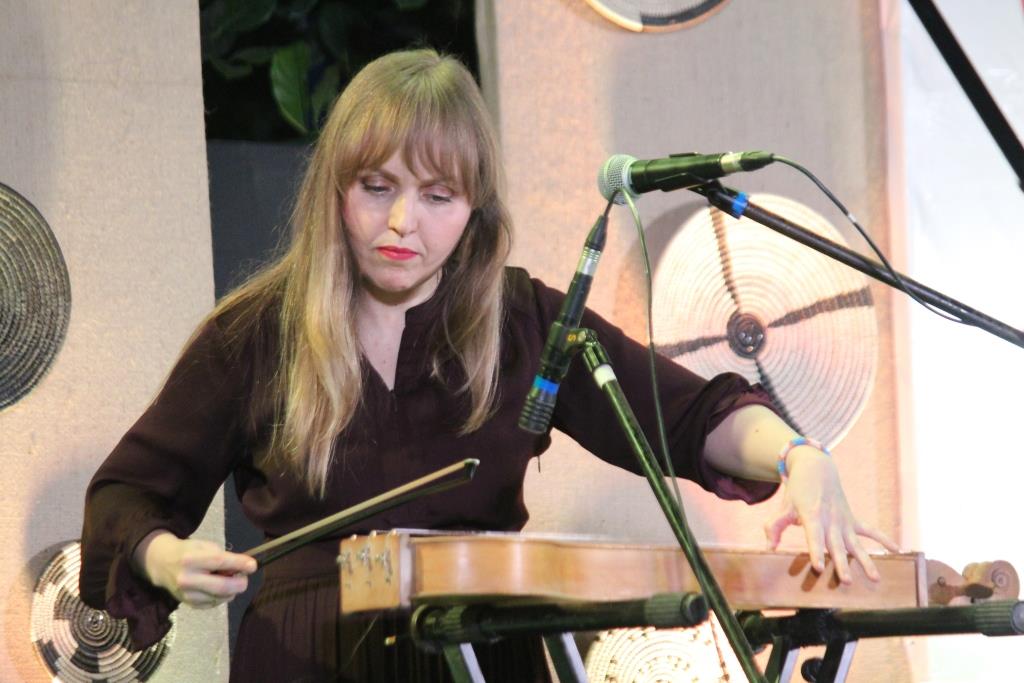
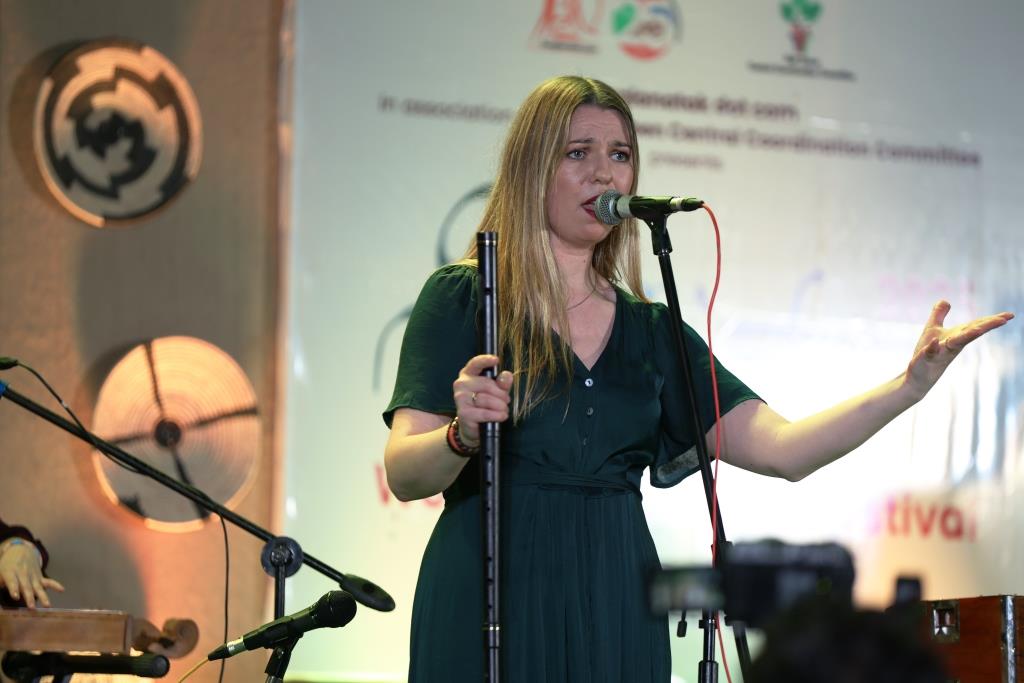
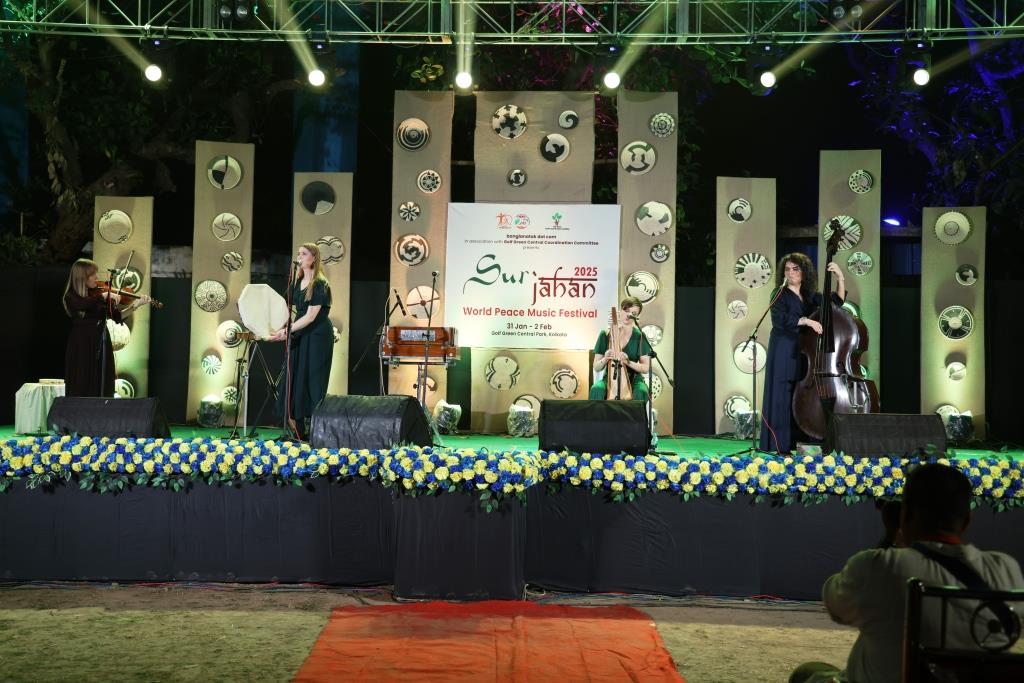
Folkcorn (Netherlands) 
A renowned Dutch folk ensemble dedicated to reviving traditional Dutch ballads and dance tunes since 1973. Their performance featured period instruments like the flute, guitar, hand drum, and accordion, preserving the authenticity of Dutch musical heritage. In the workshop, they highlighted the meaning behind their songs, which reflect everyday life and traditions. A rare traditional percussion instrument was showcased, and most of their repertoire consisted of dance songs, bringing an engaging and rhythmic energy to the stage.
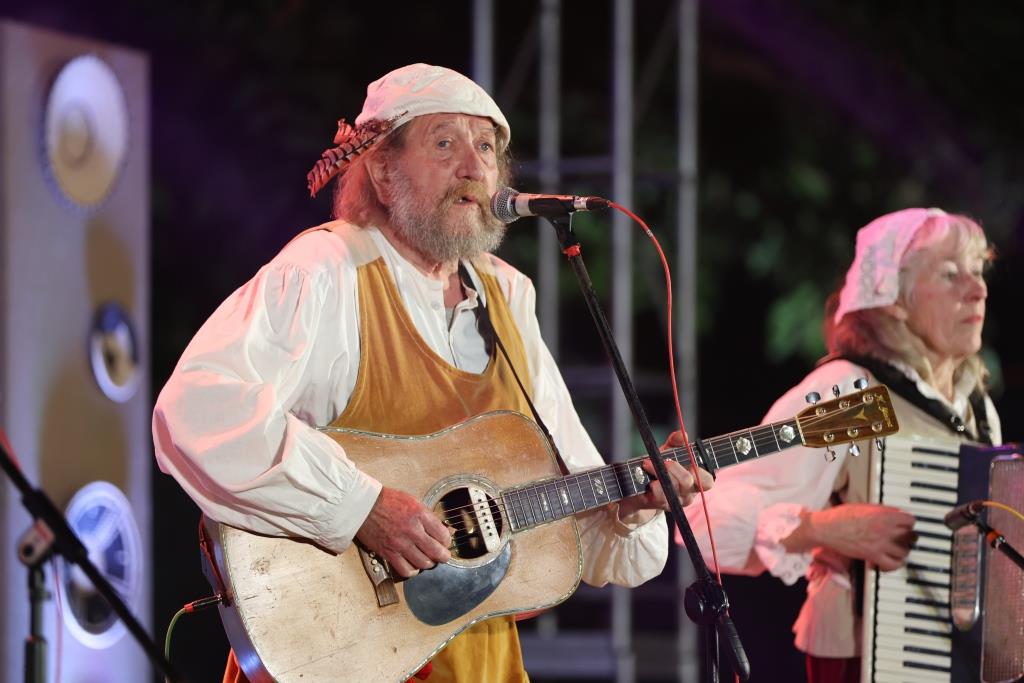
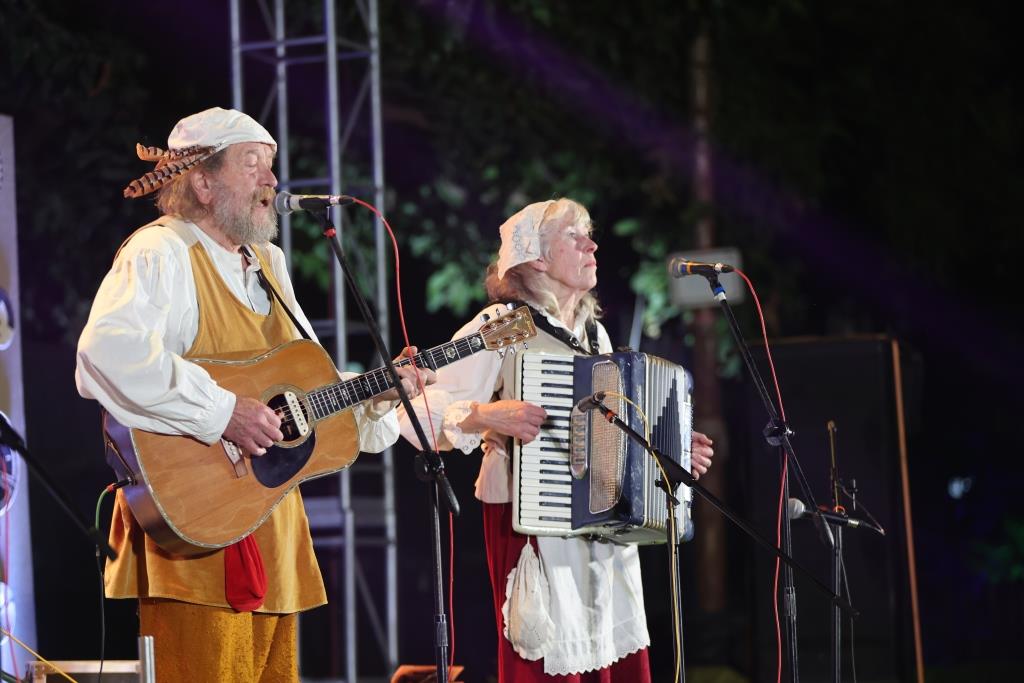
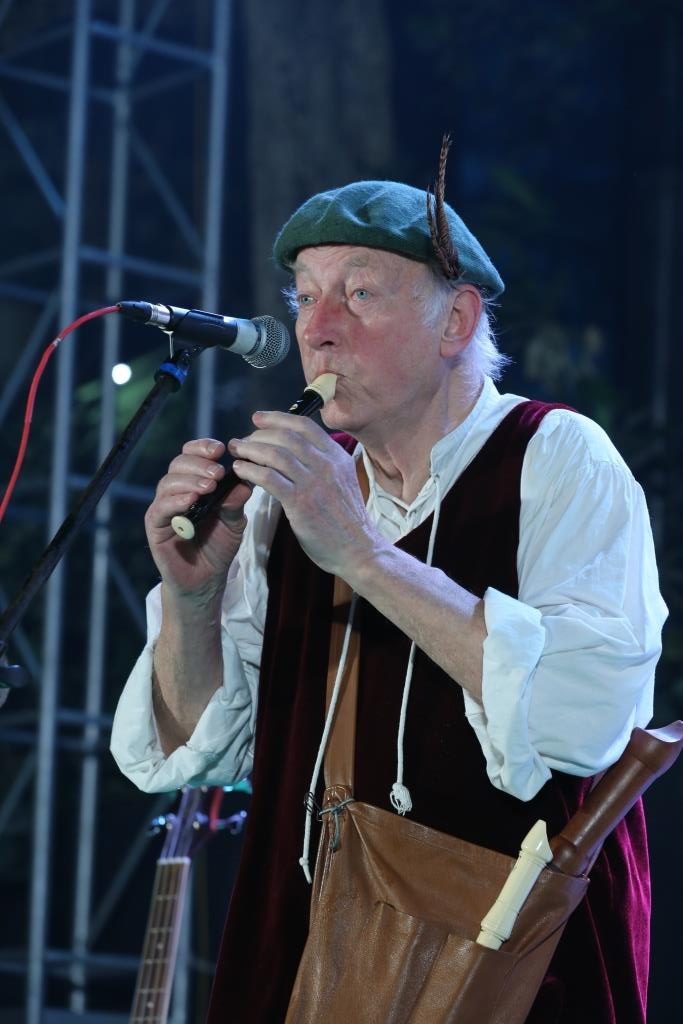
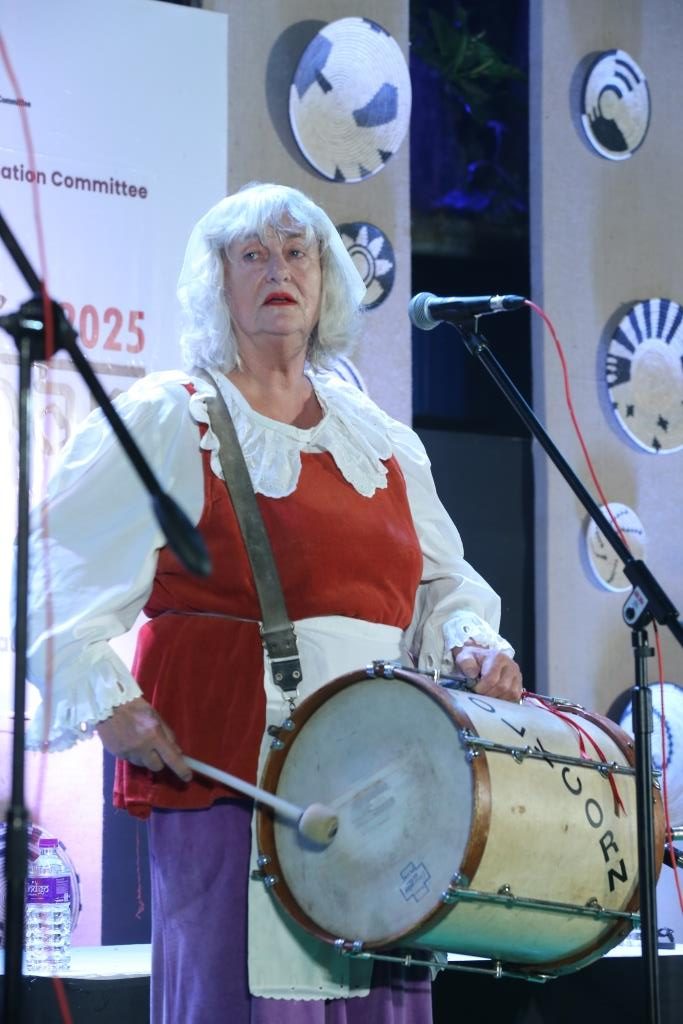
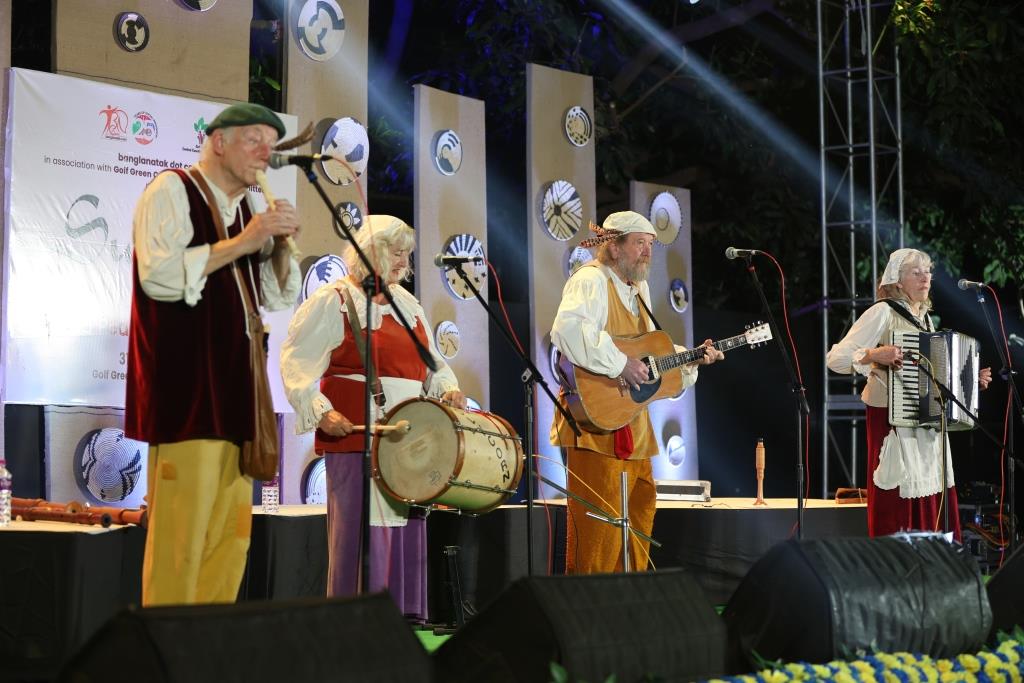
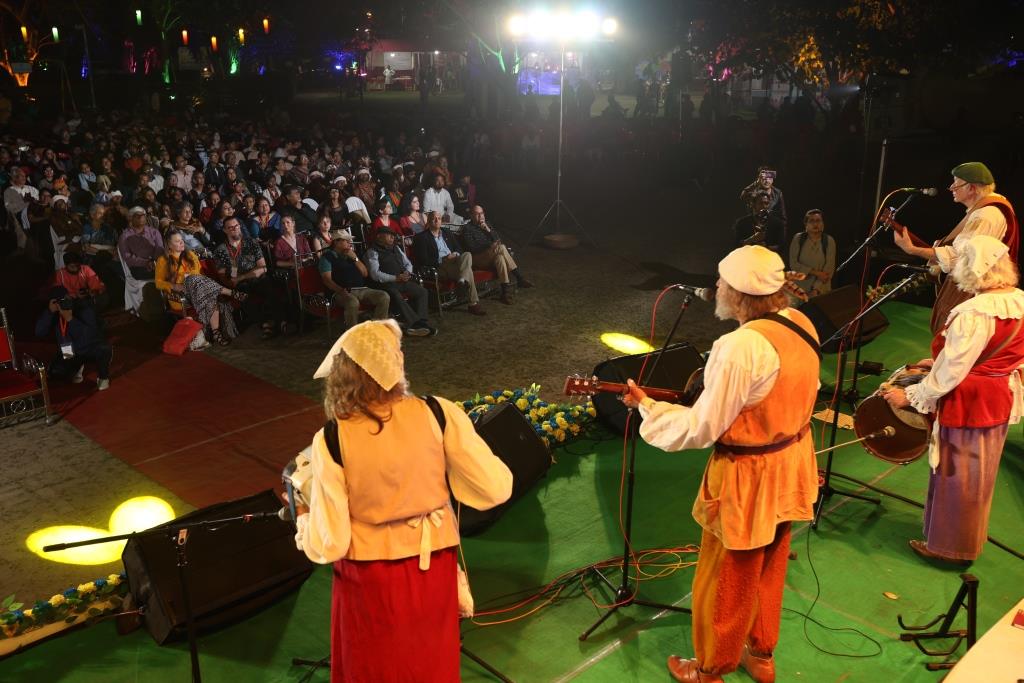
 Durua Tribal Song & Dance (India – Odisha)
Durua Tribal Song & Dance (India – Odisha)
A special attraction from Odisha’s Koraput district, this performance brought the raw and powerful essence of tribal rhythms to the festival. The chants, drum beats, and energetic dance movements resonated deeply with the audience, who were so moved by the infectious energy that they couldn’t help but join in the dance, turning the venue into a space of shared celebration.
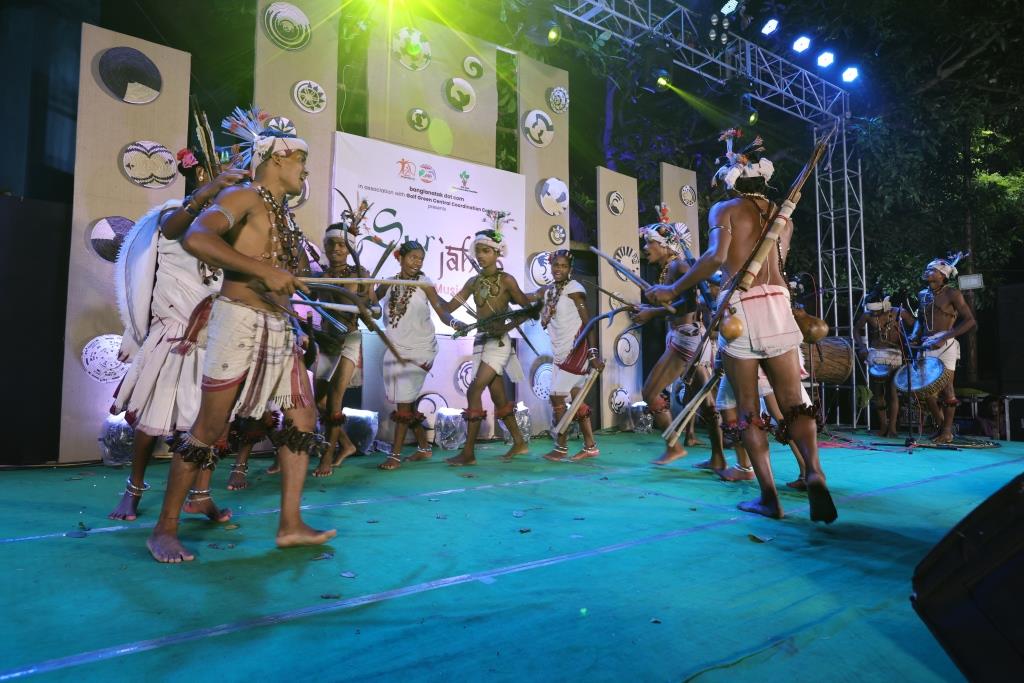
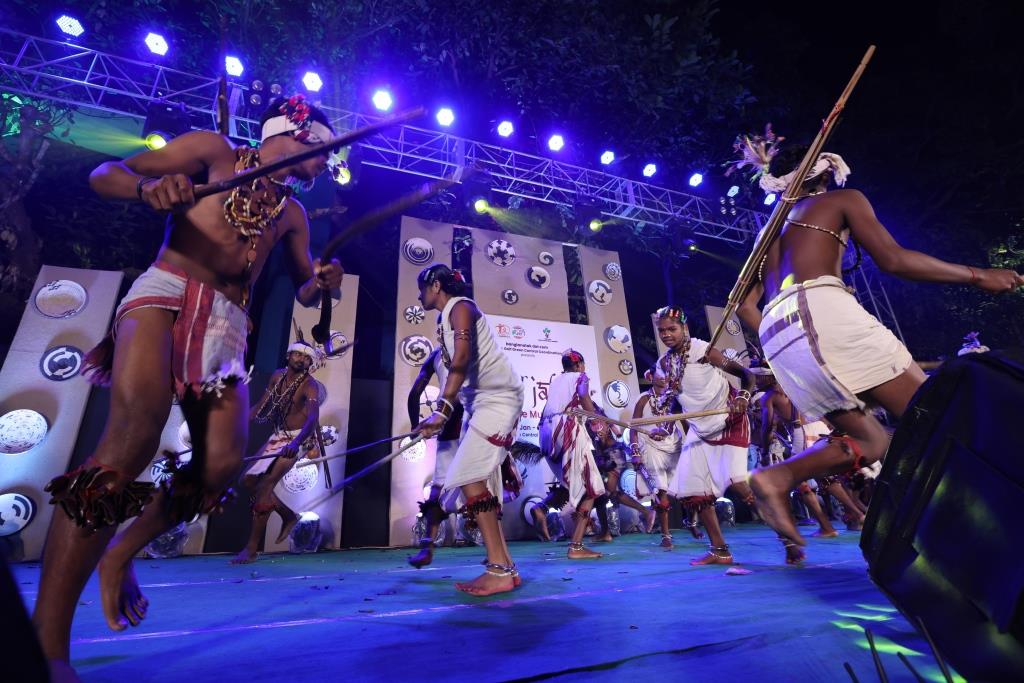
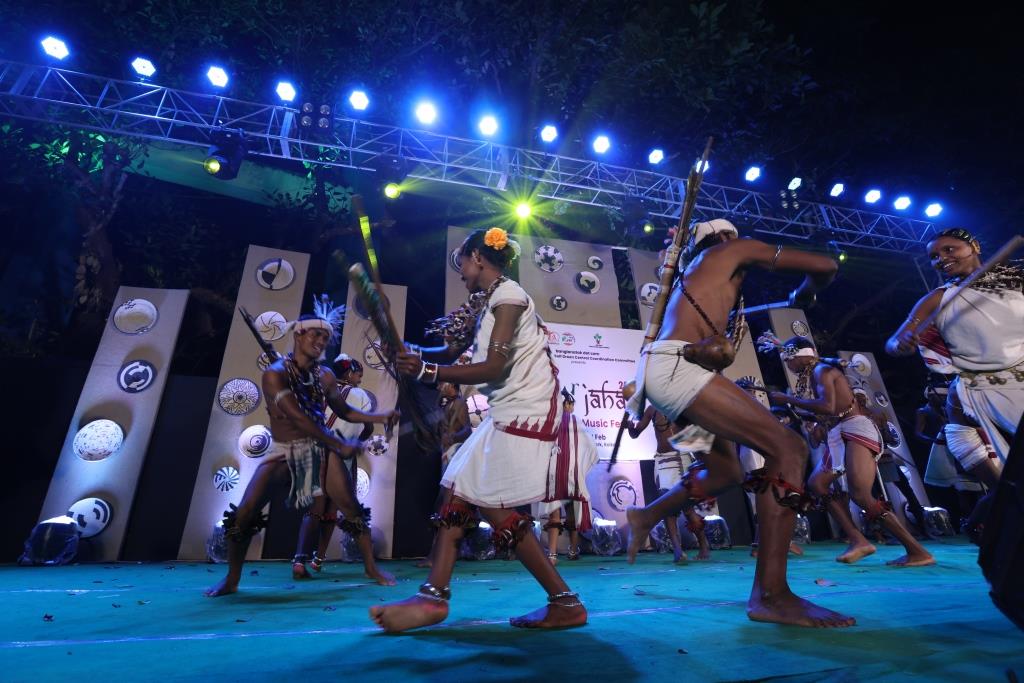

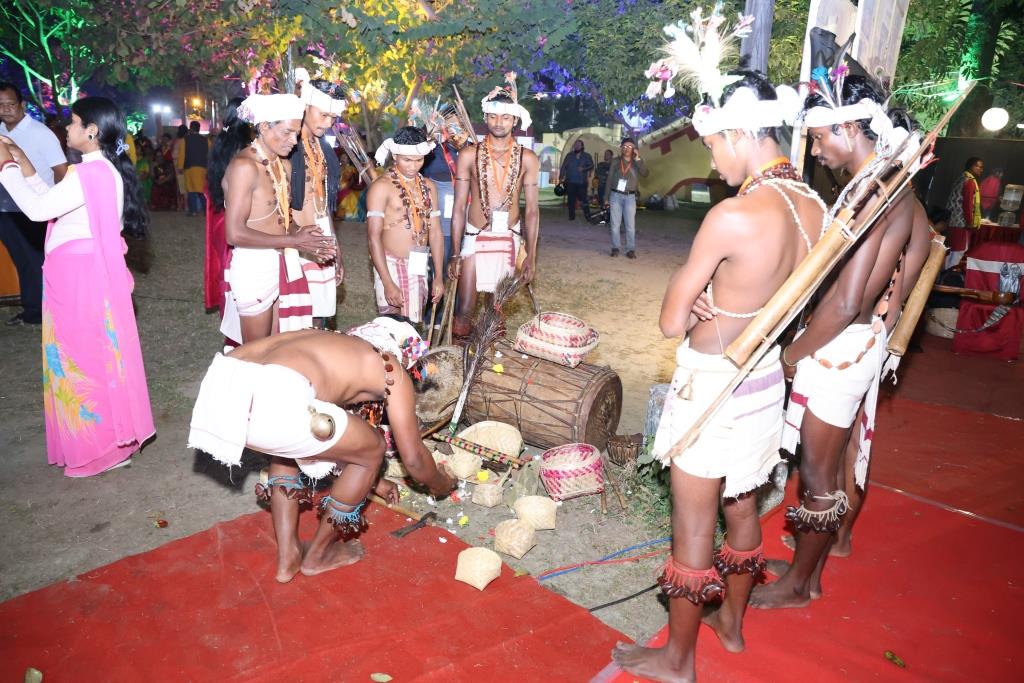
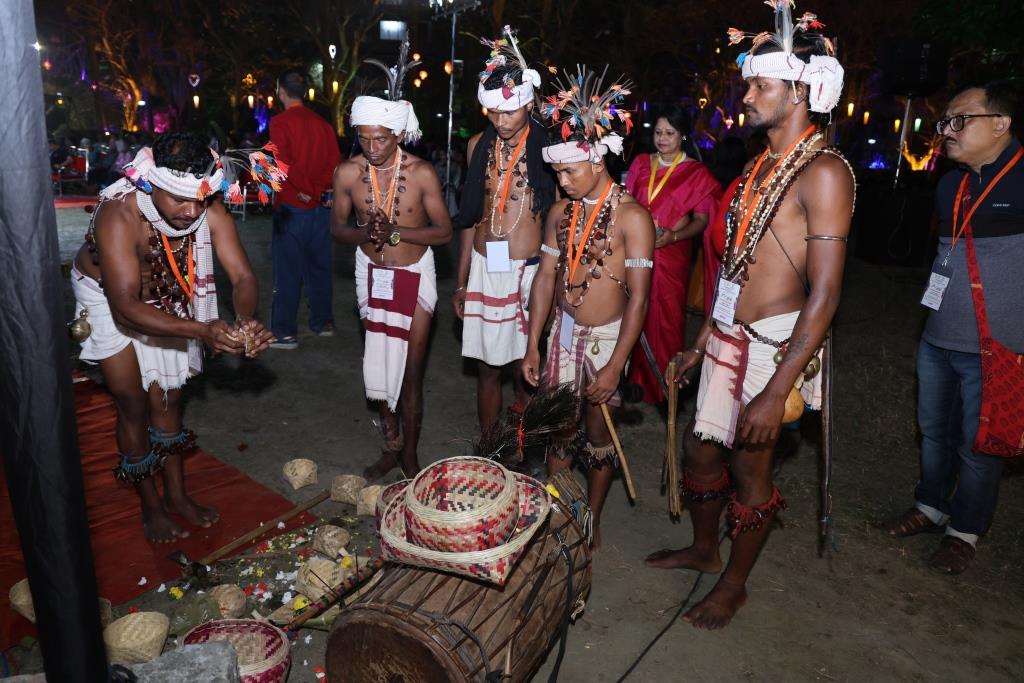
Kasam Khan Langa & Group (India – Rajasthan) 
Masters of Rajasthani folk music, their performance evoked the soul of the desert through the melodic strains of the Sindhi Sarangi, accompanied by khartal, dholak, and Kasam Khan Langa’s extraordinary vocals. Their music carried the essence of Rajasthan’s oral storytelling traditions, deeply resonating with the audience.
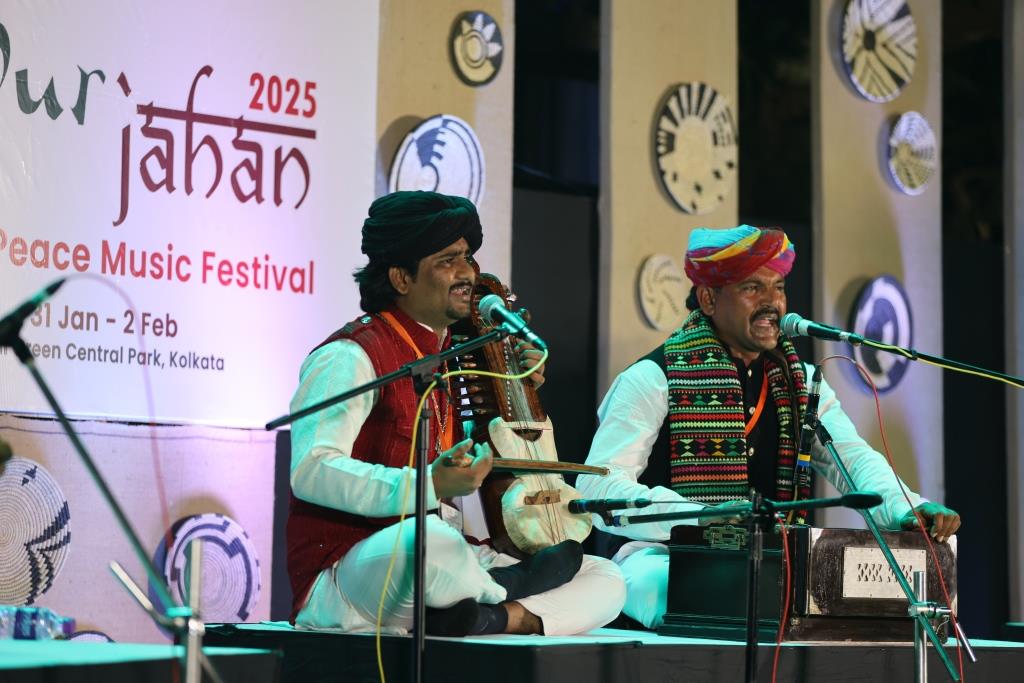
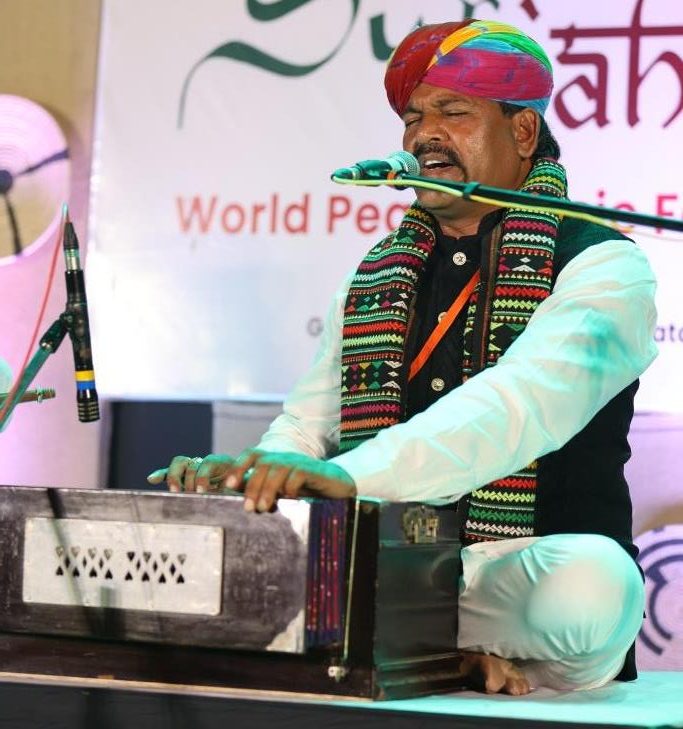
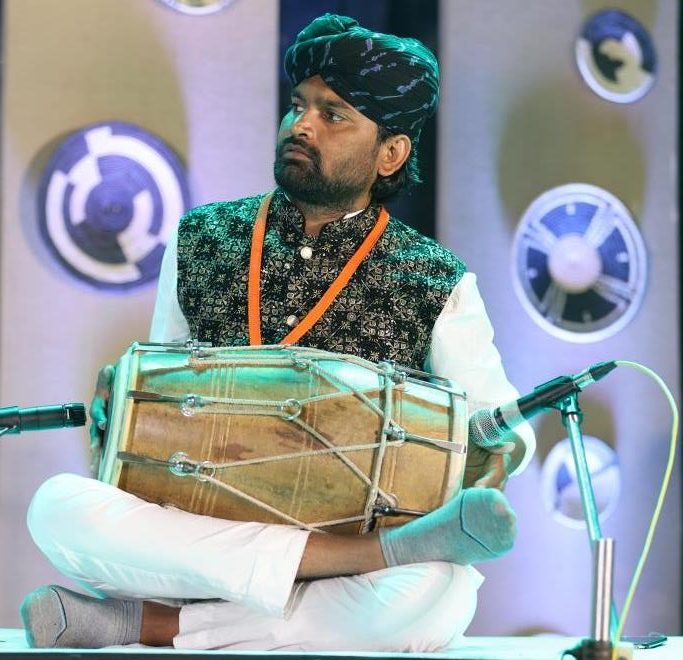
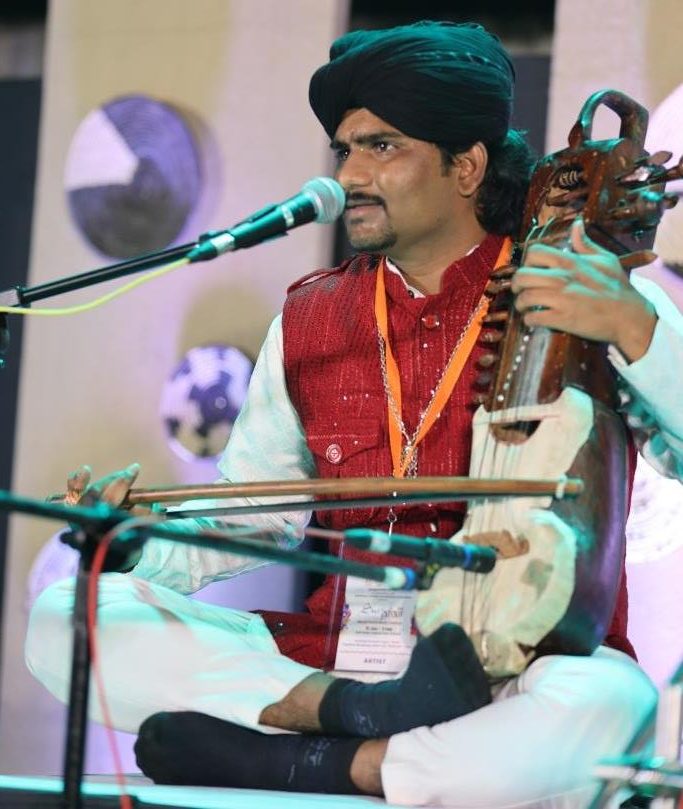
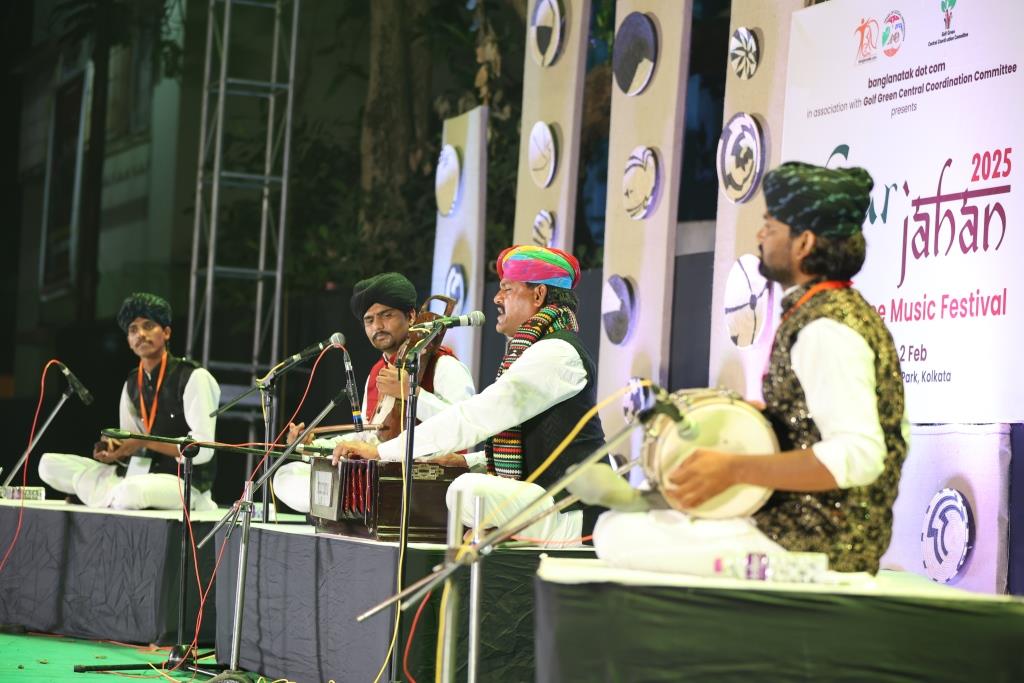
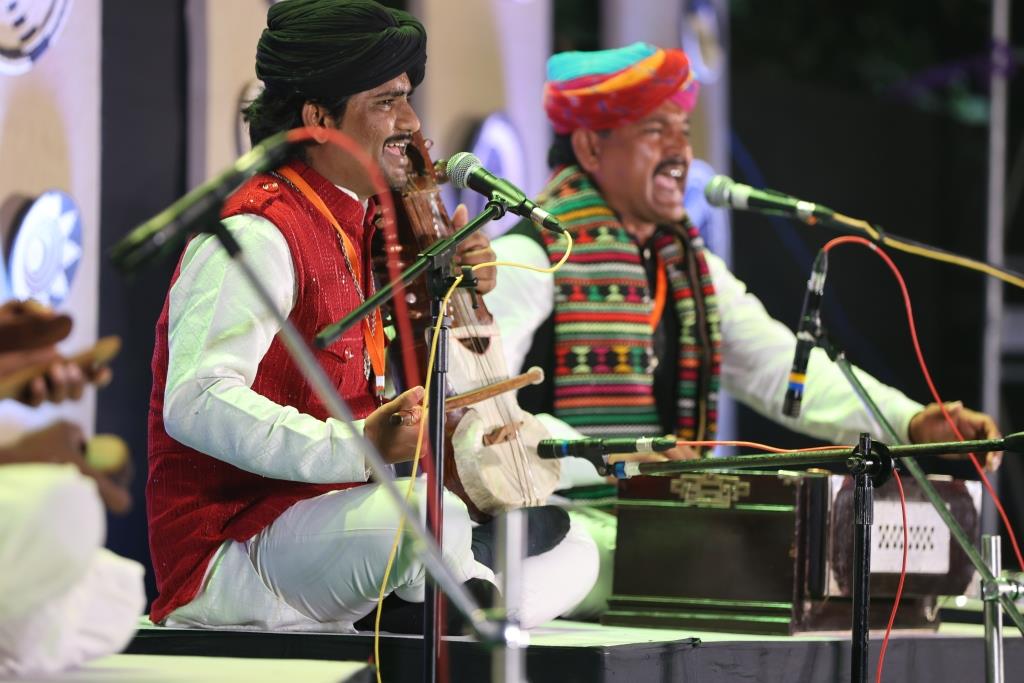
 Kangal Khyapa & Baul Ensemble (India – Bengal)
Kangal Khyapa & Baul Ensemble (India – Bengal)
Steeped in the Baul spiritual tradition, their music expressed themes of devotion, mysticism, and love. Kangal Khyapa delivered a rare and mesmerizing dotara recital—an uncommon feat among Baul musicians—while Arjun Khyapa’s soul-stirring voice captivated listeners. Nimai Khyapa added depth to the performance with his vocals and energetic Baul dance, leaving the audience entranced.
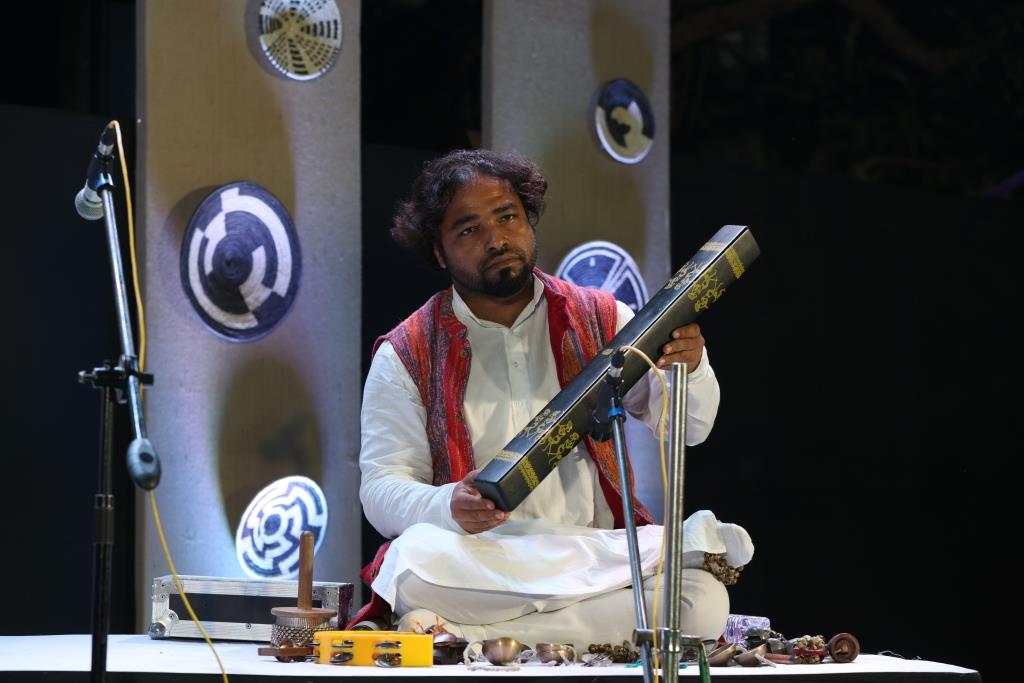
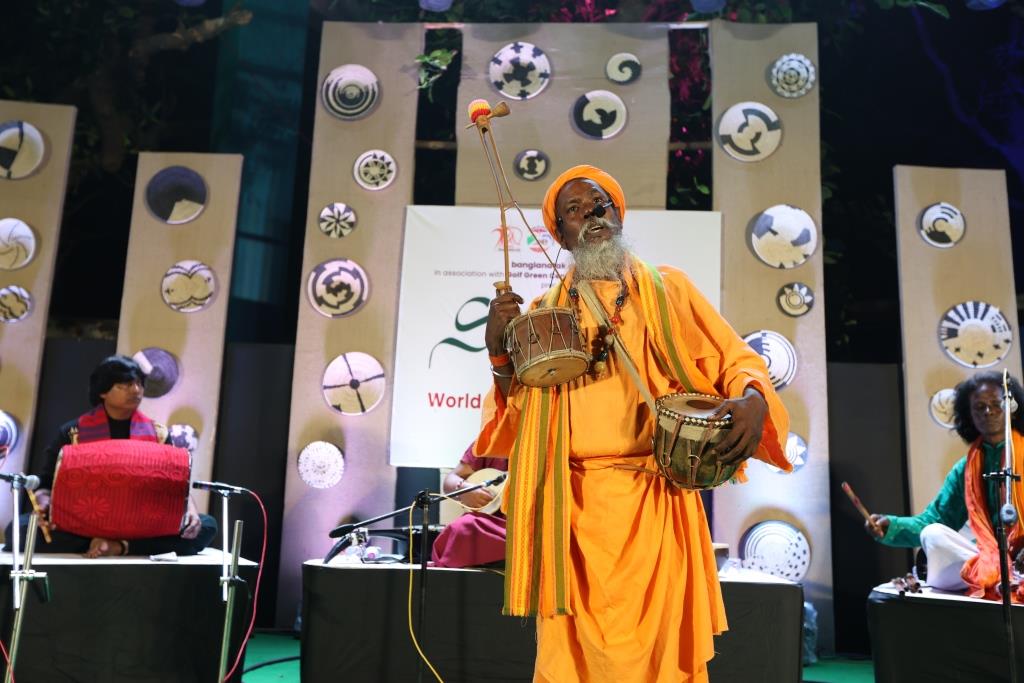

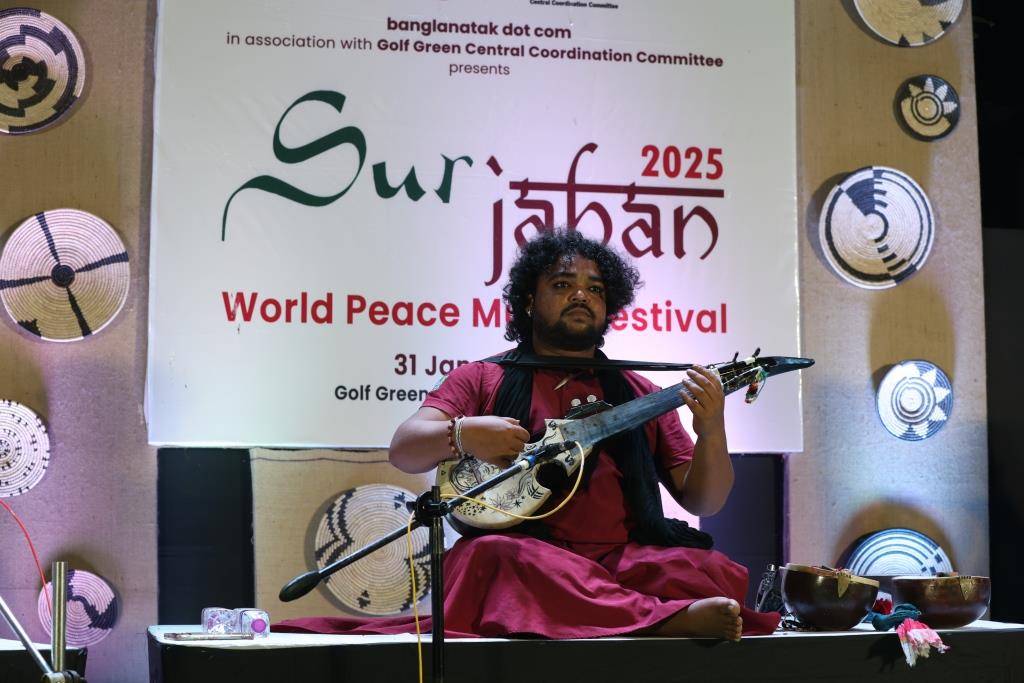
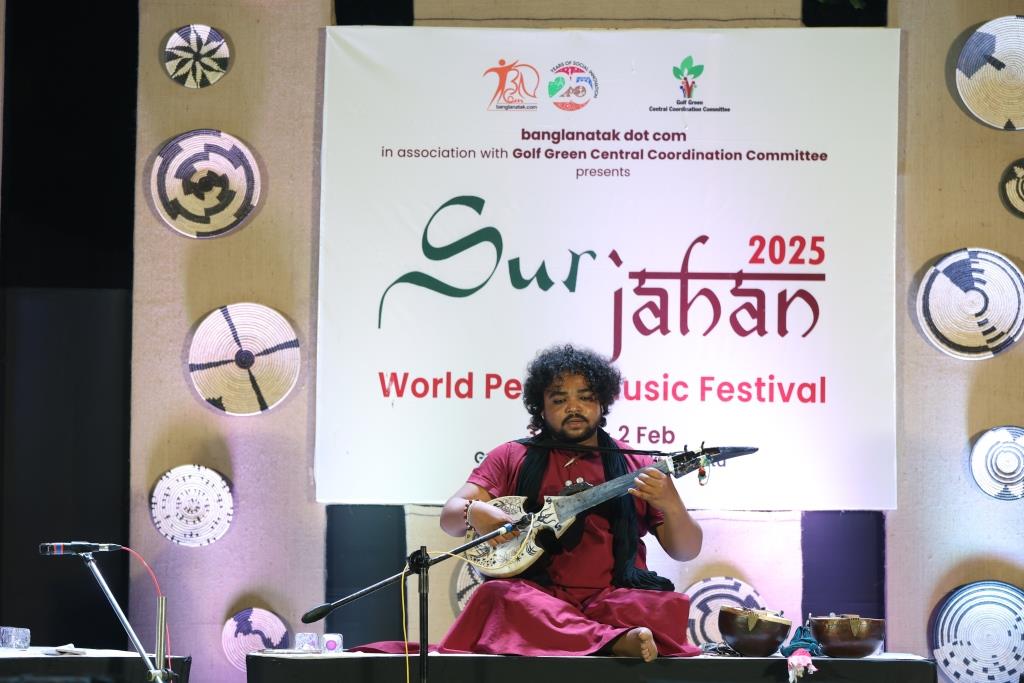

Surbandhan (India – Bengal) 
A heartfelt tribute to the legendary composer Salil Chowdhury, blending folk and contemporary influences. Their performance was a grand spectacle with multiple dance groups performing simultaneously, creating a visual and musical extravaganza. More than 300 voices from the audience joined in the singing, turning the evening into a collective celebration of the revered Salil Chowdhury’s timeless compositions.
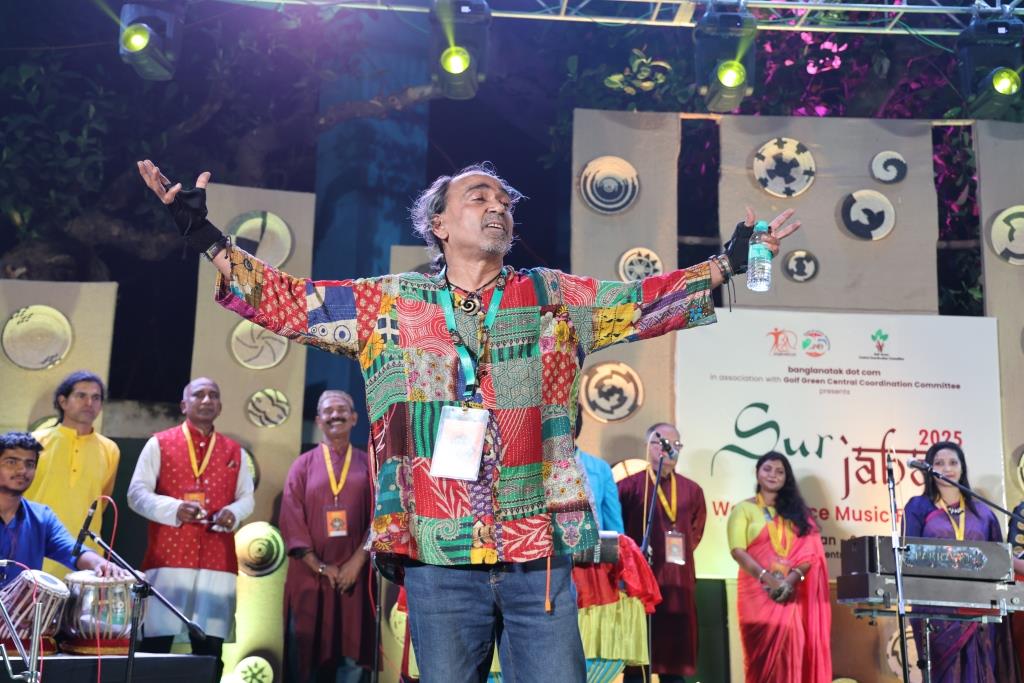
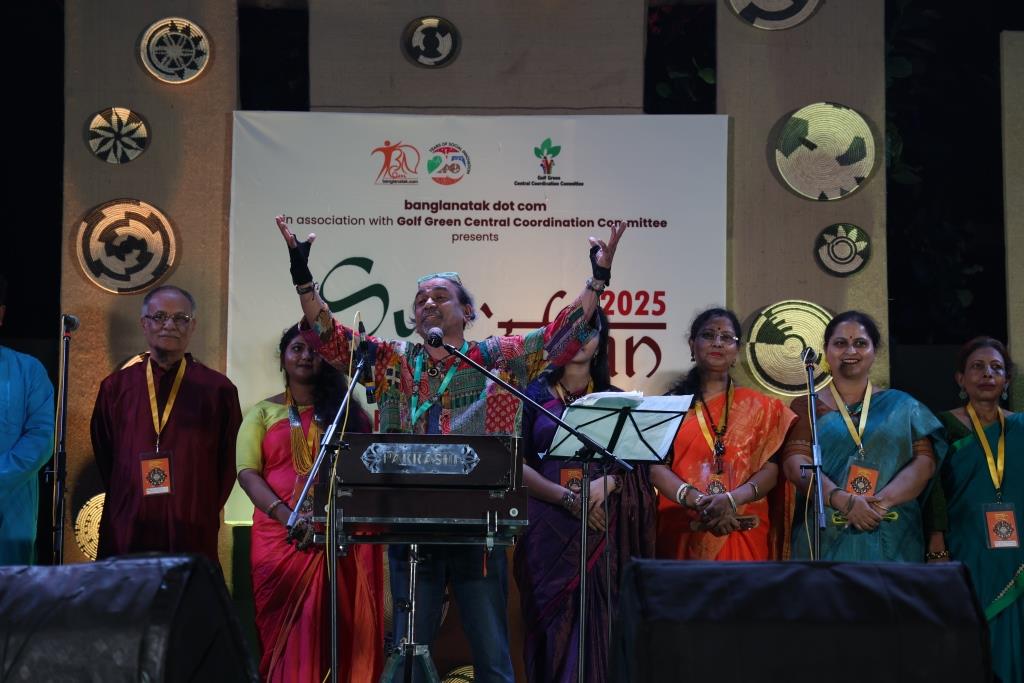
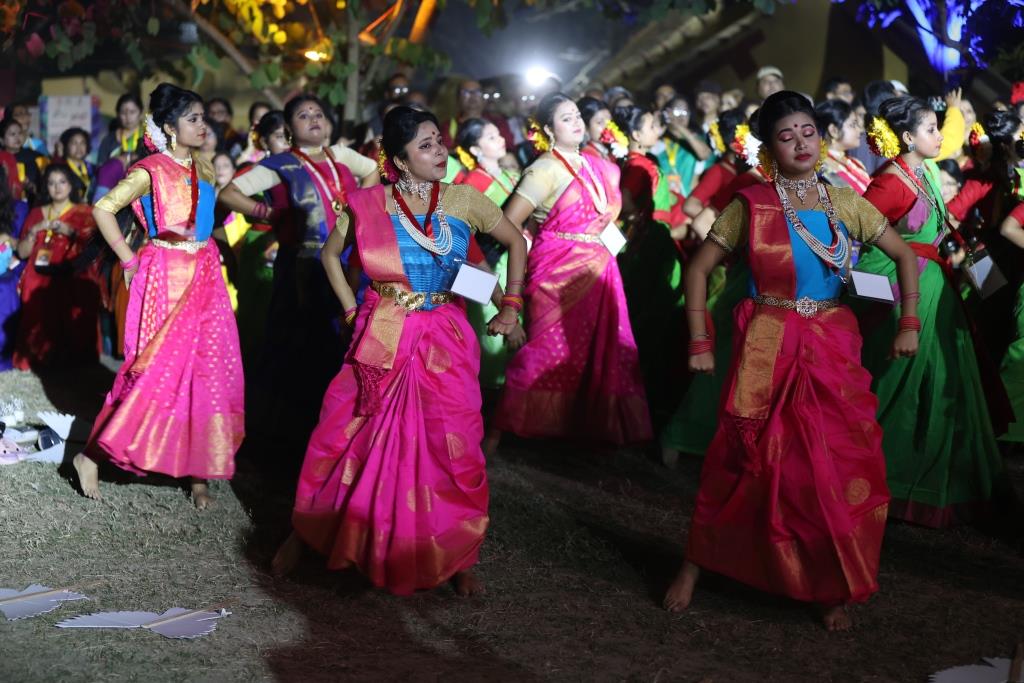
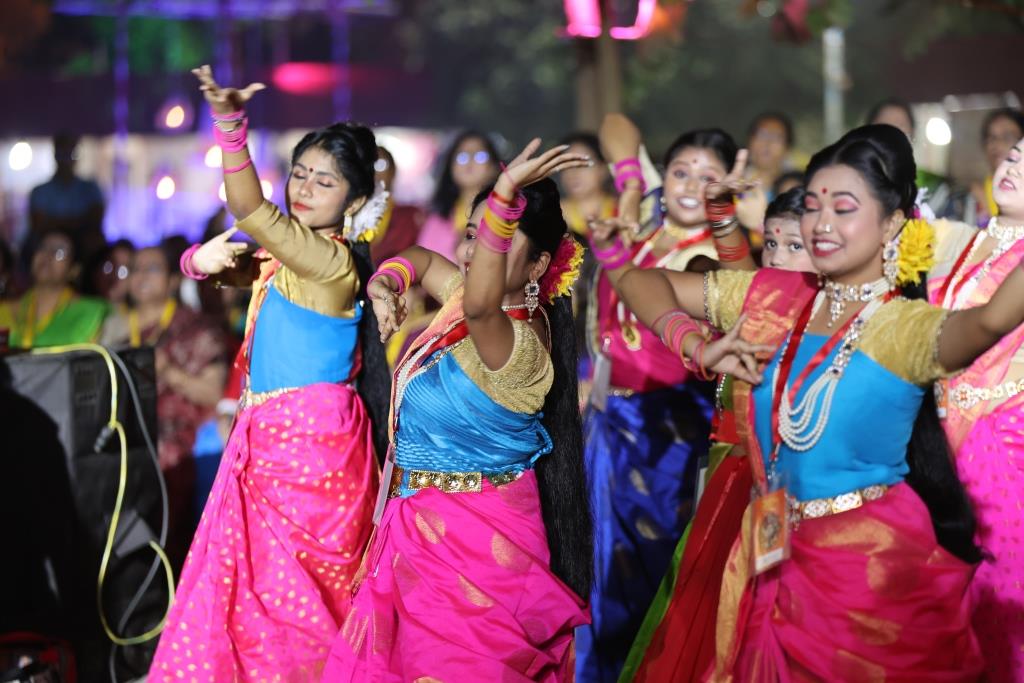
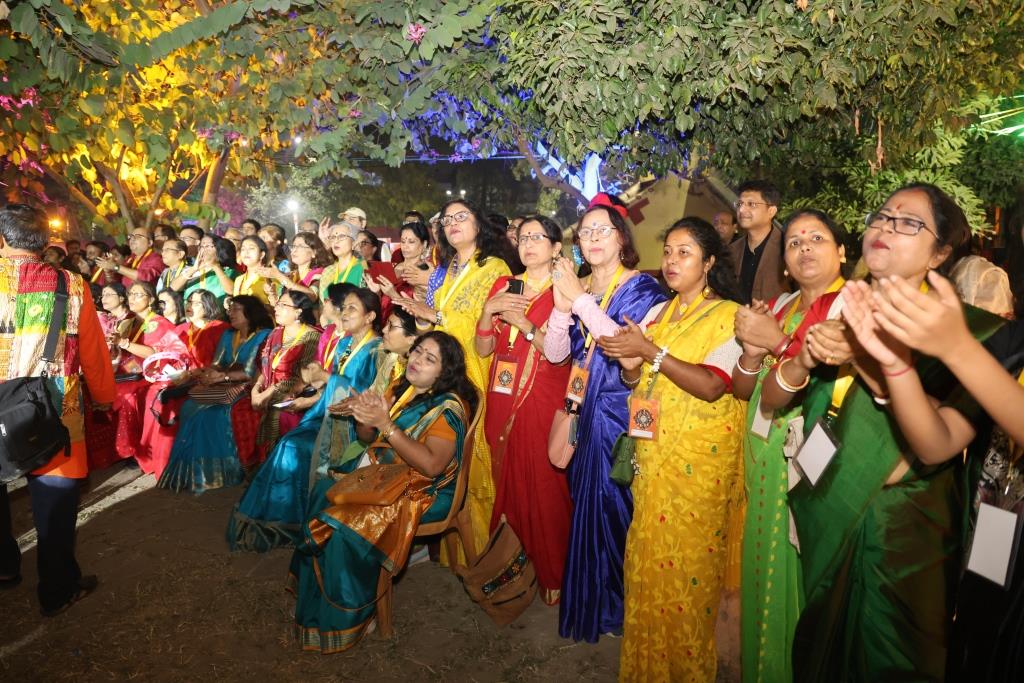
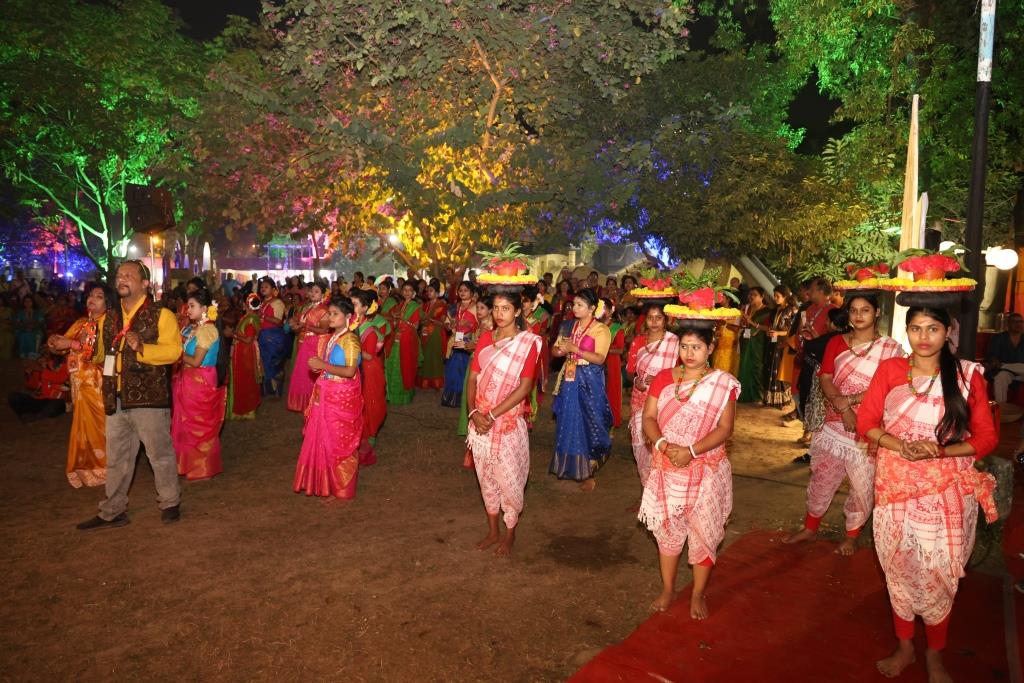
 Folks of Bengal (India – Bengal)
Folks of Bengal (India – Bengal)
An urban folk initiative that showcased the evolving sounds of Bengal’s folk traditions. Highlights included Deepmoy Das and Manoshitwa Thakur’s original contemporary folk compositions, along with Joy Shankar and Pranesh’s soulful renditions of traditional folk songs, bridging the past with the present.
